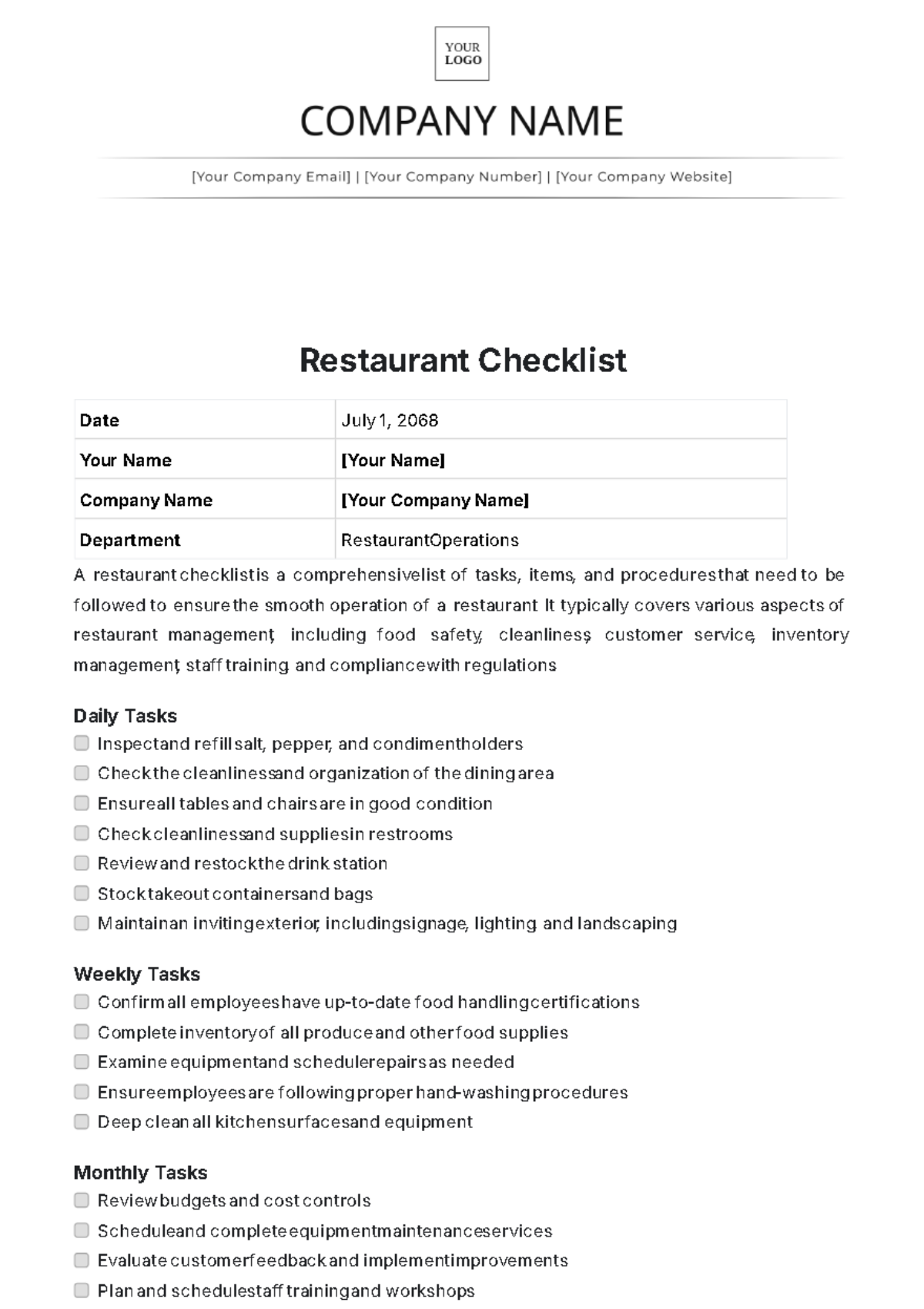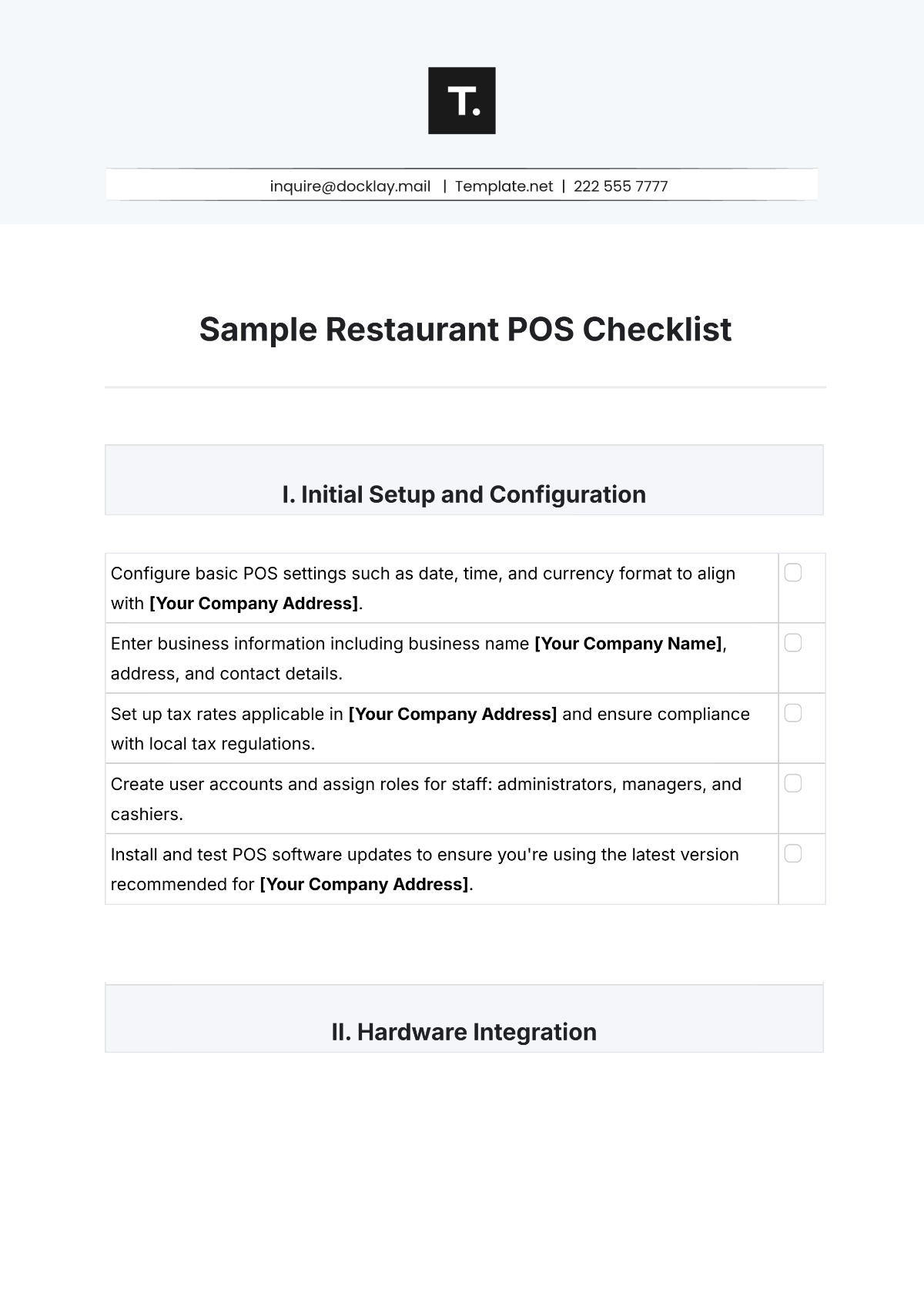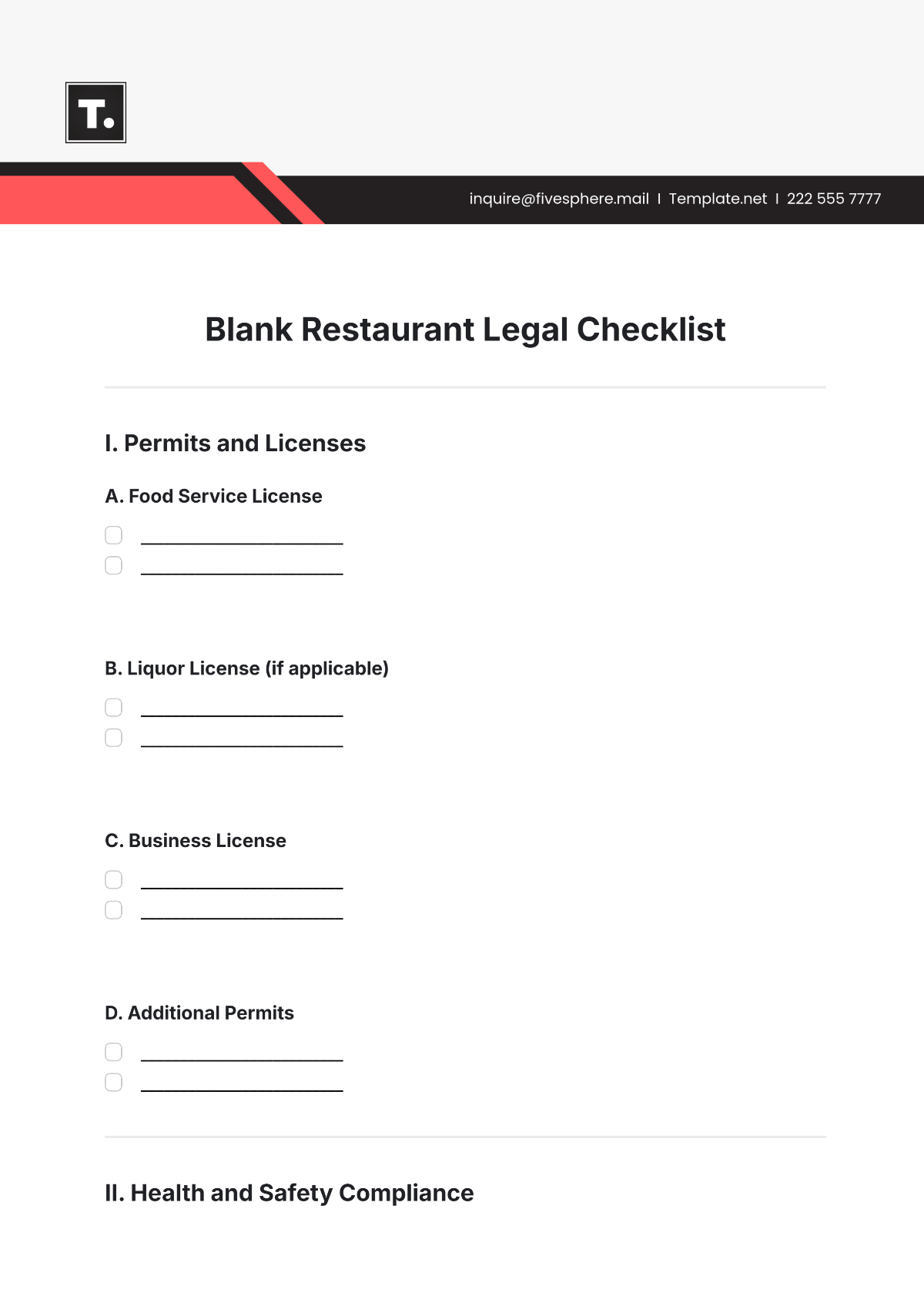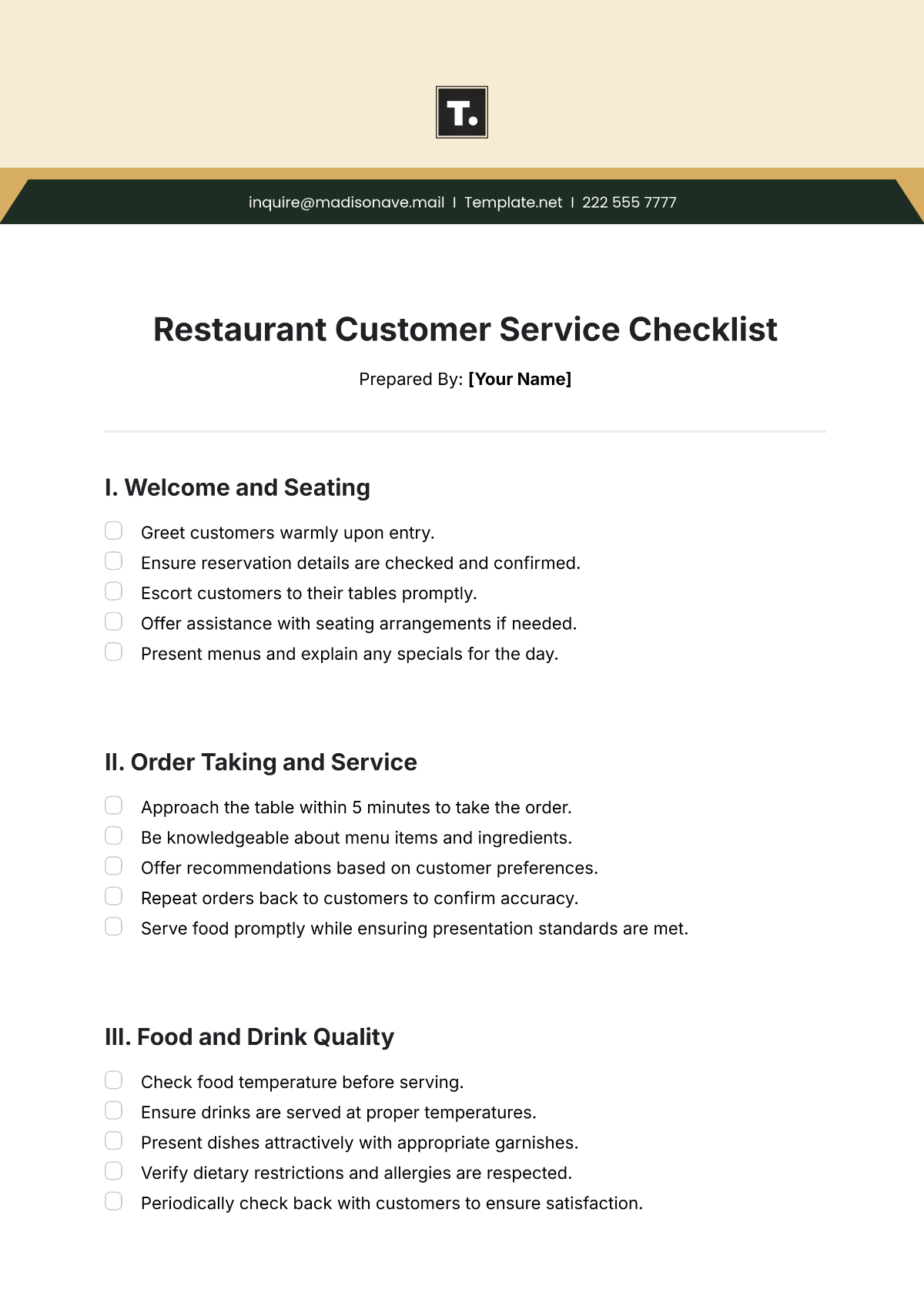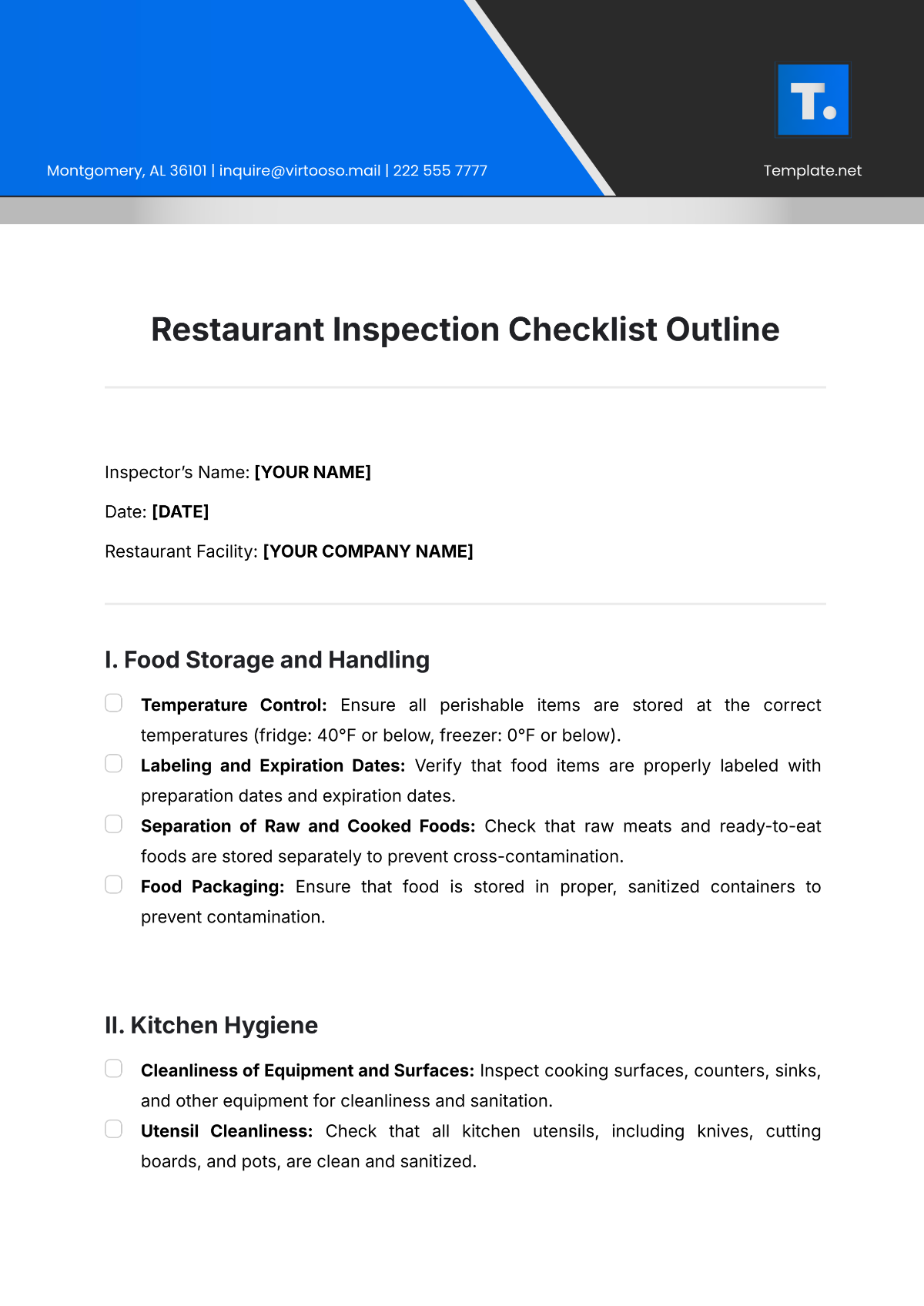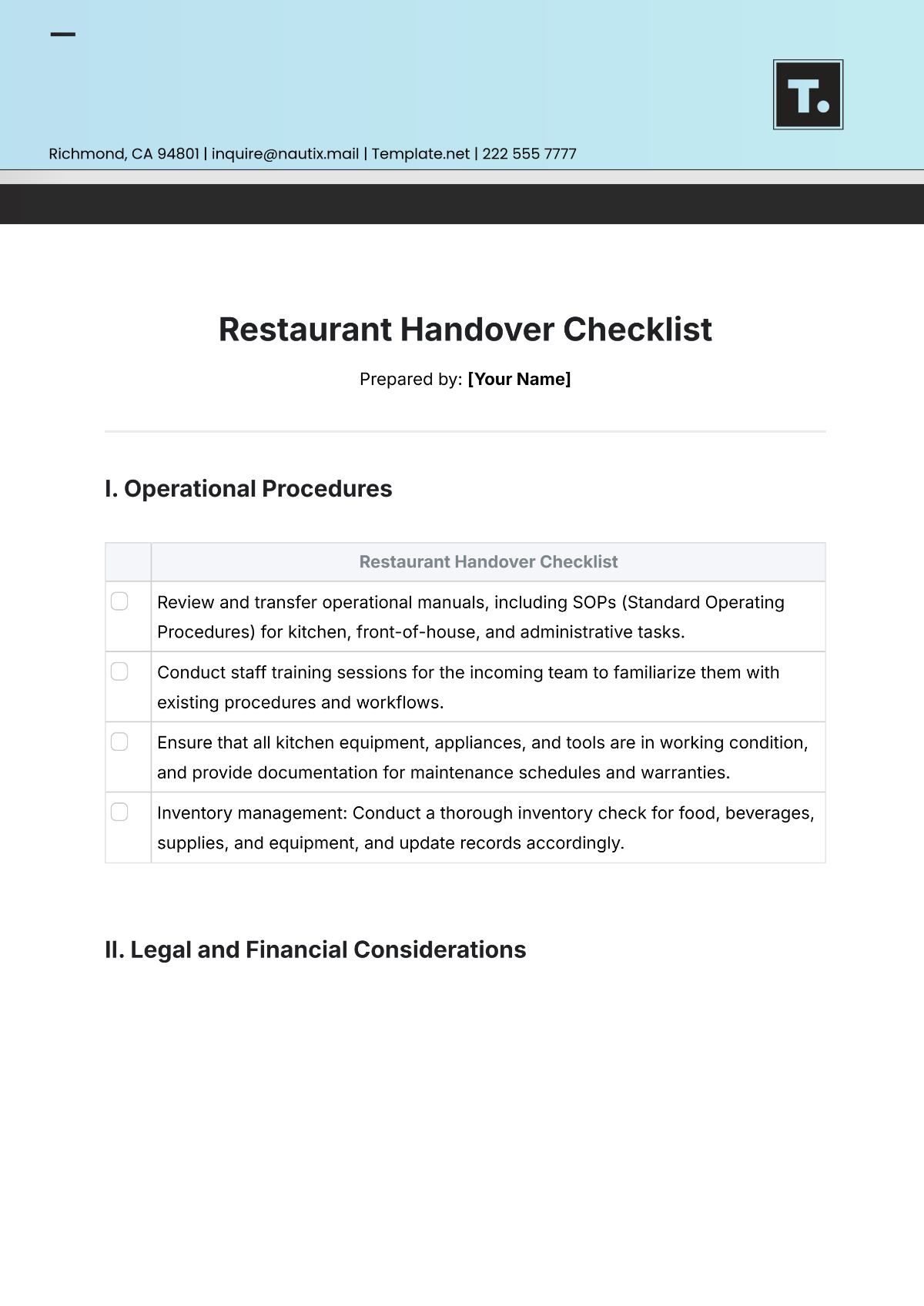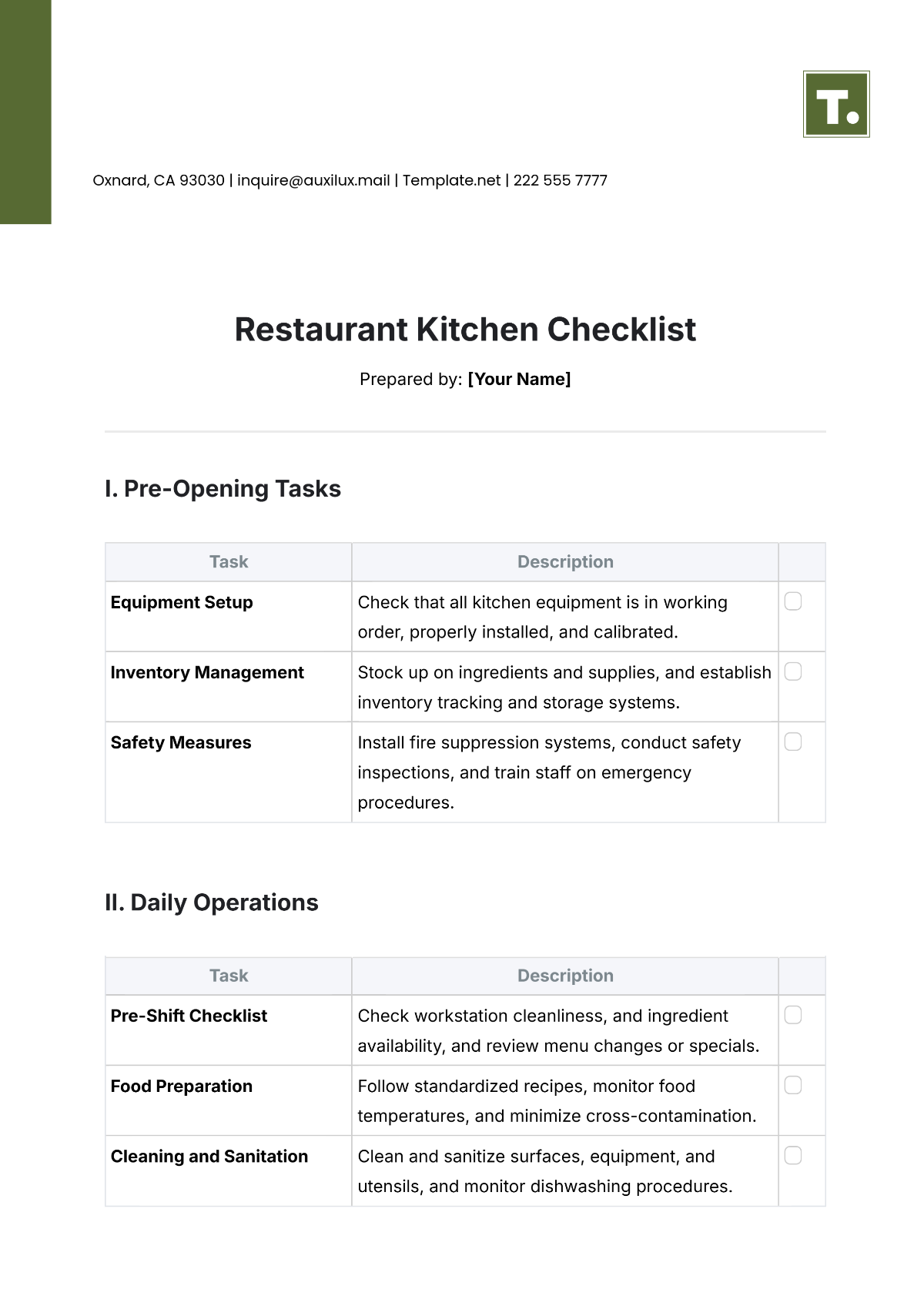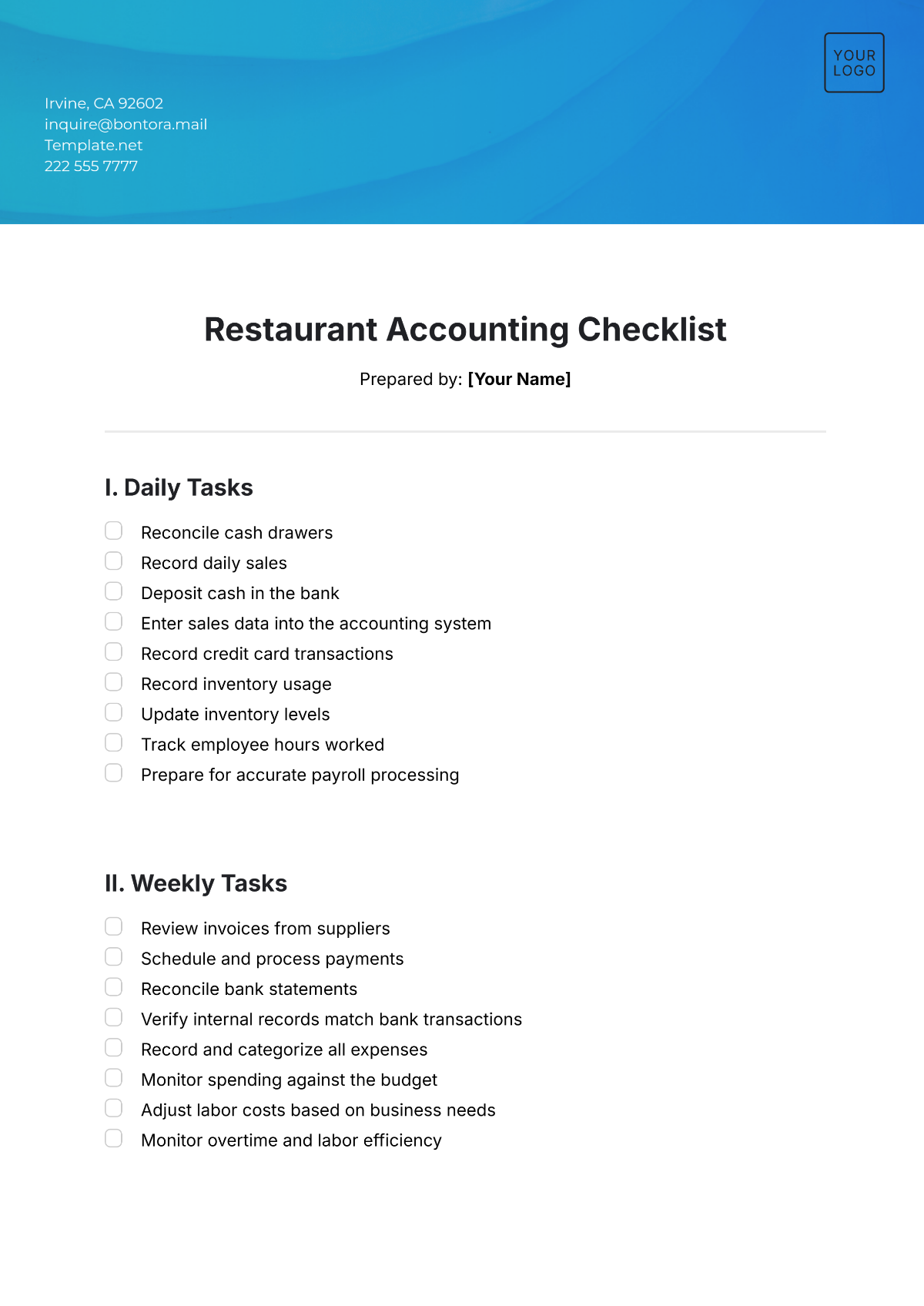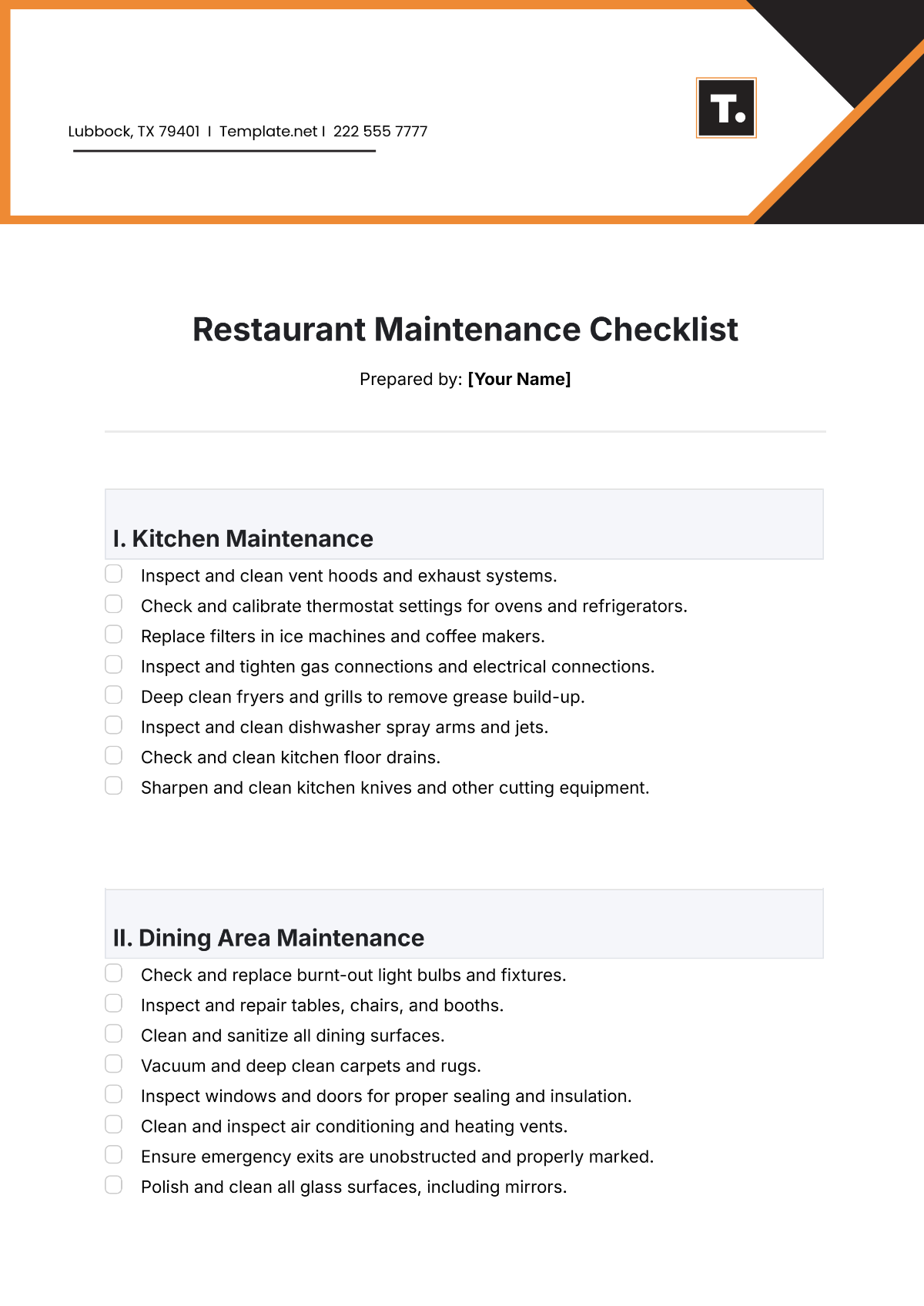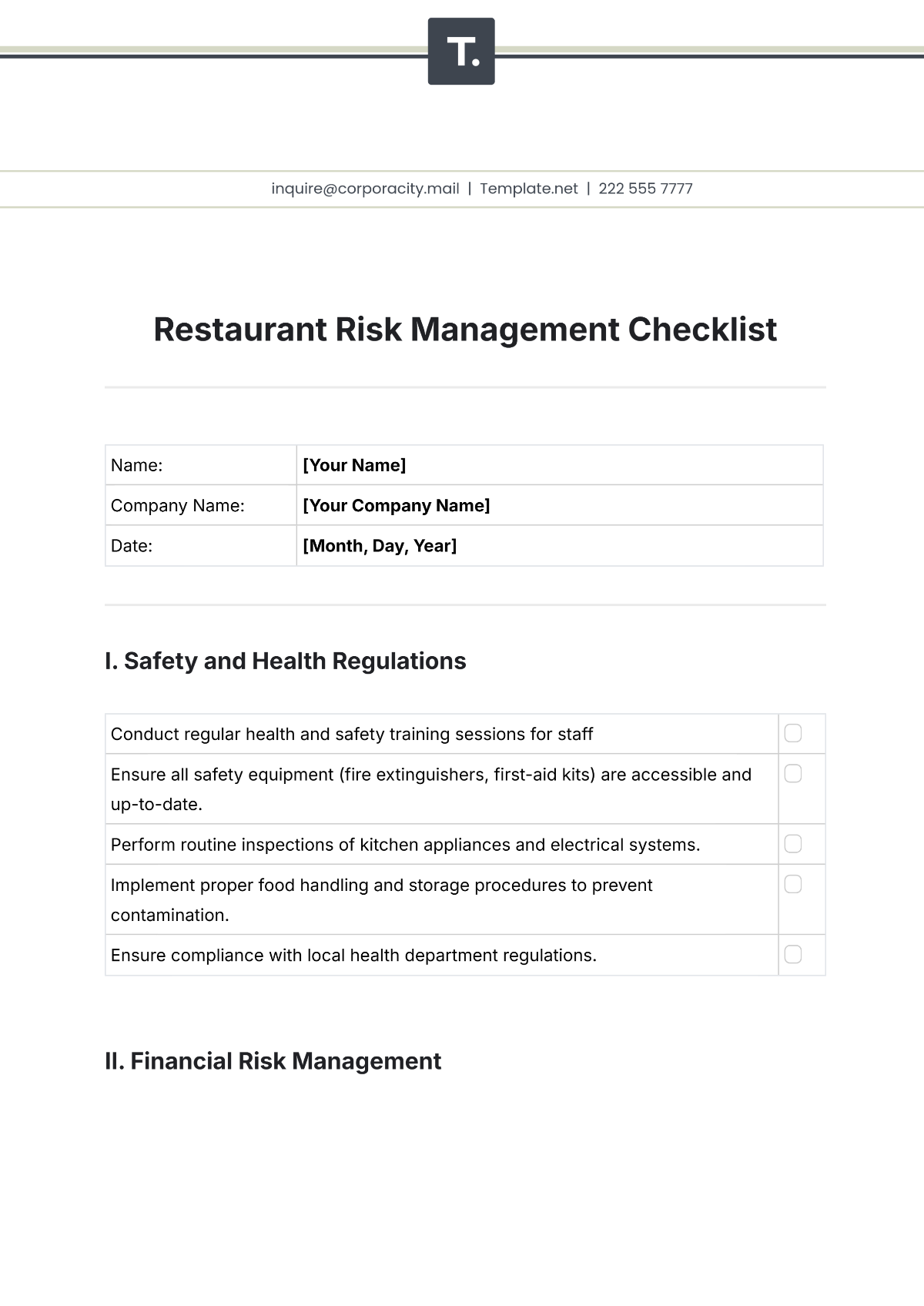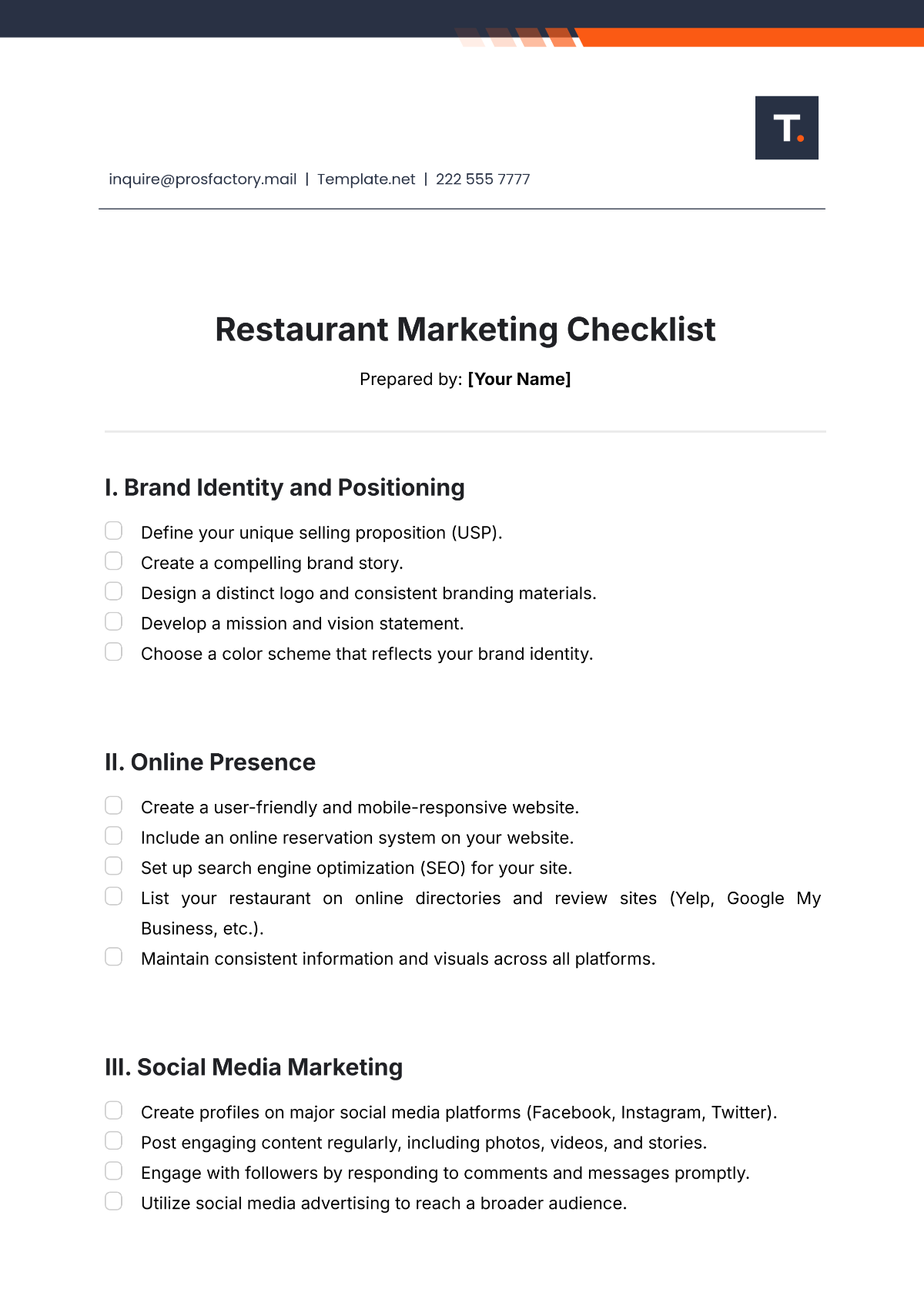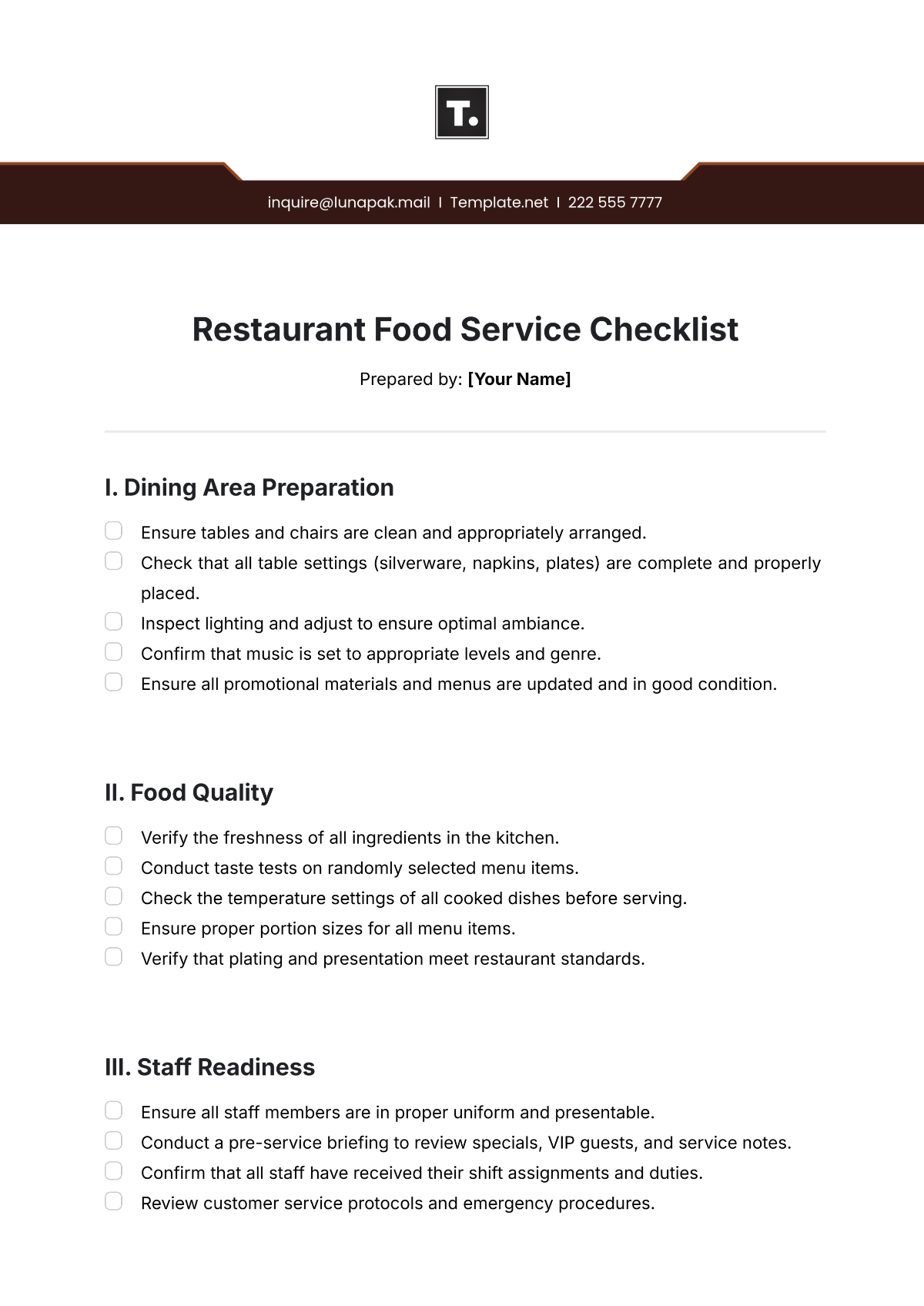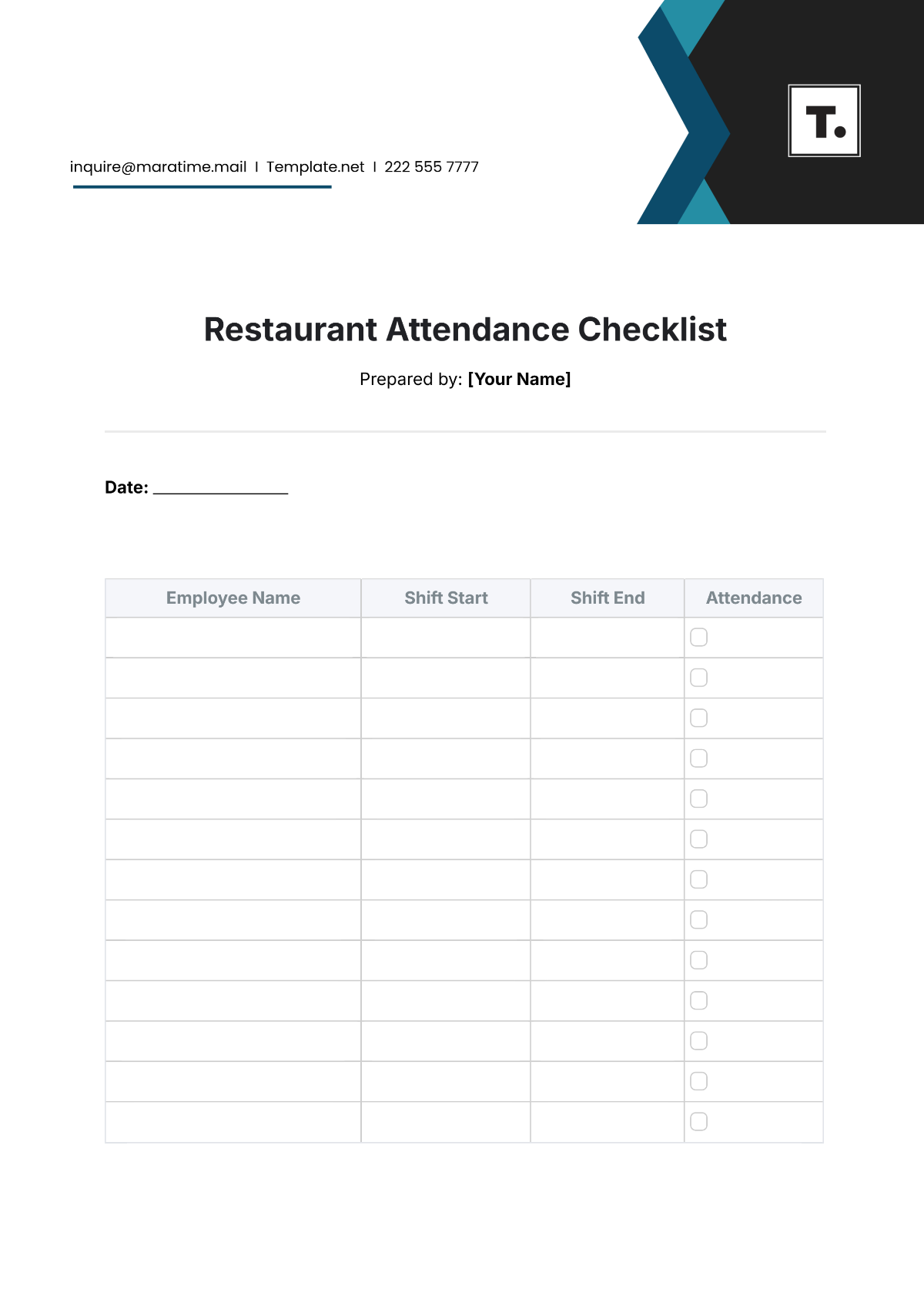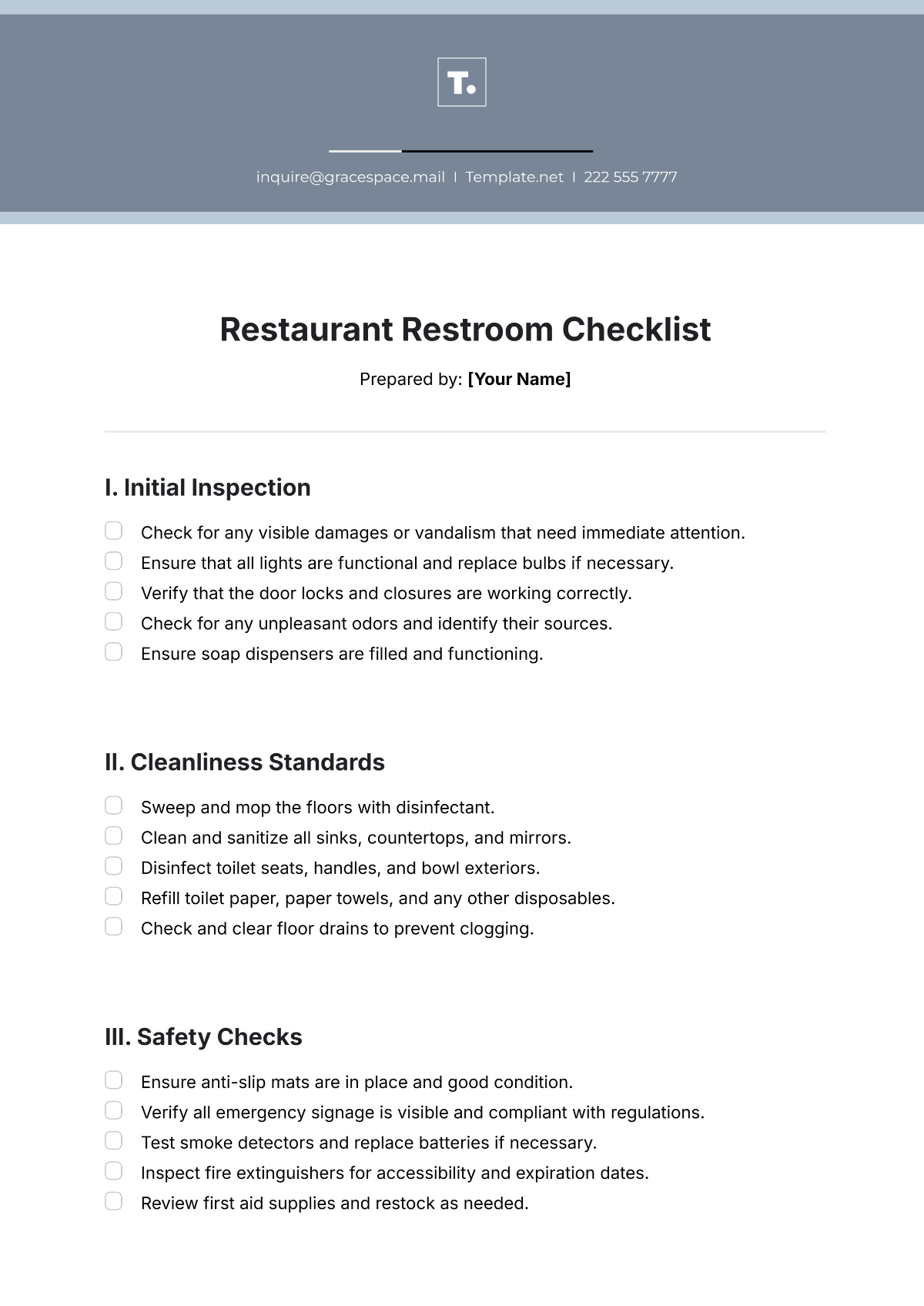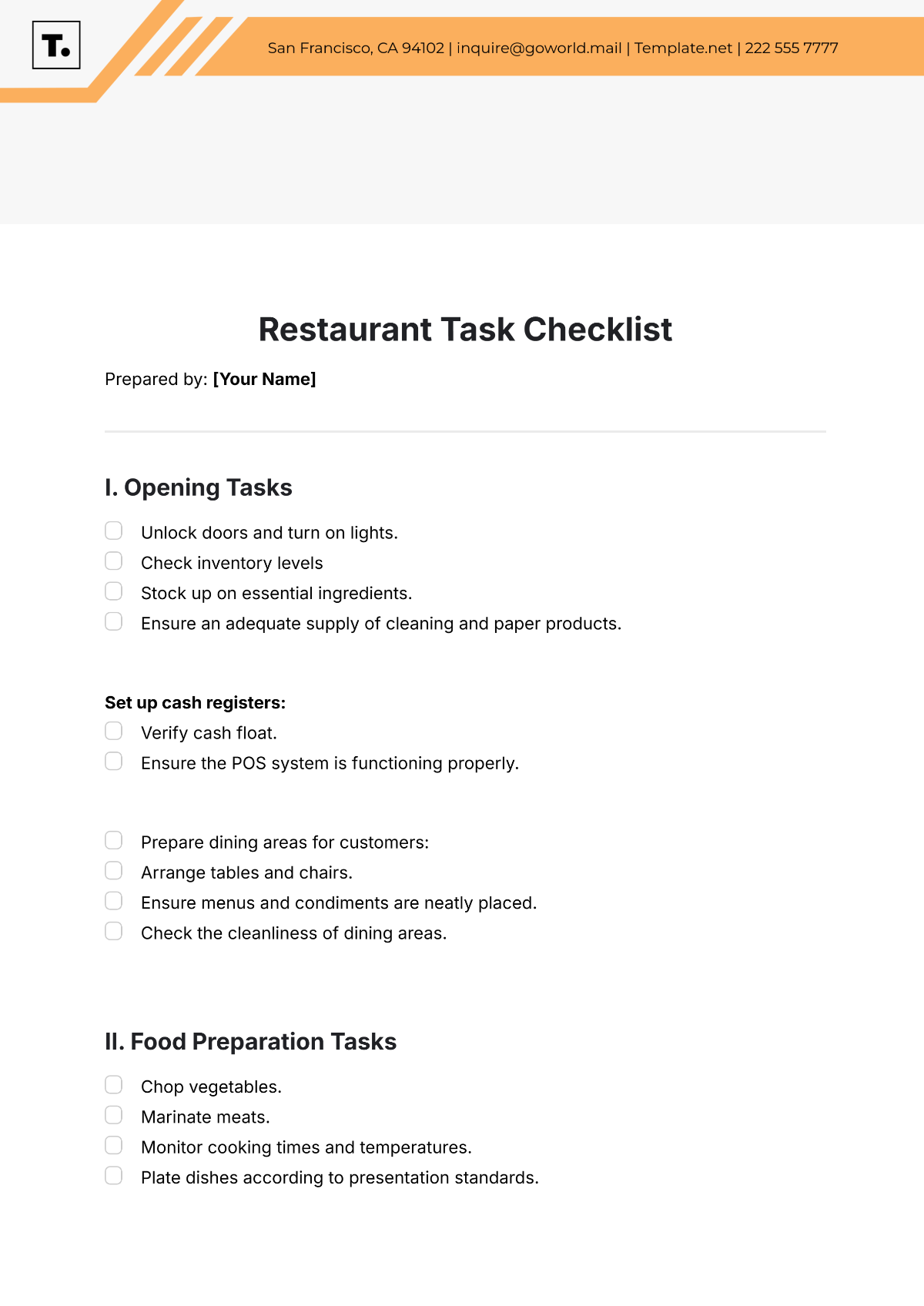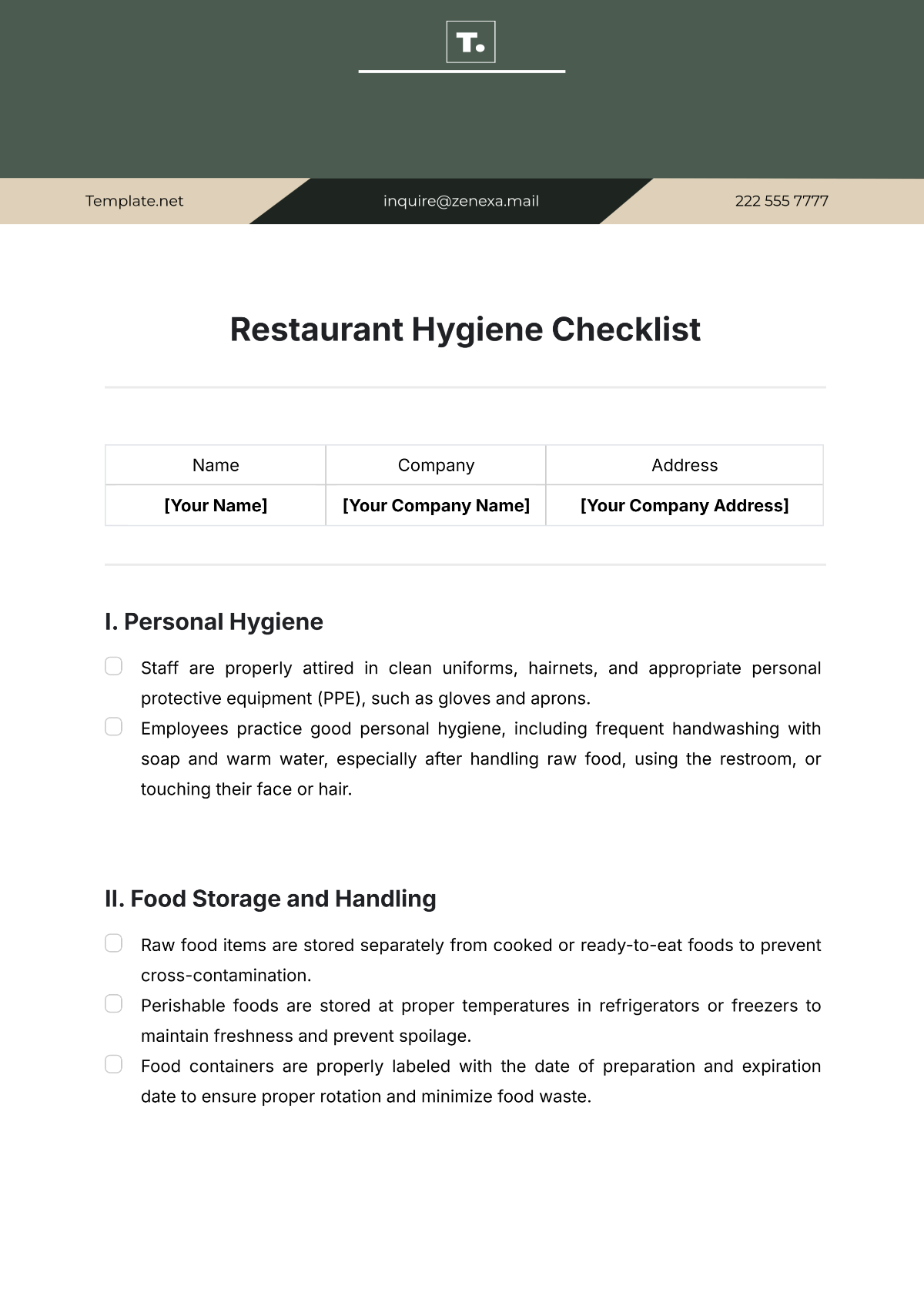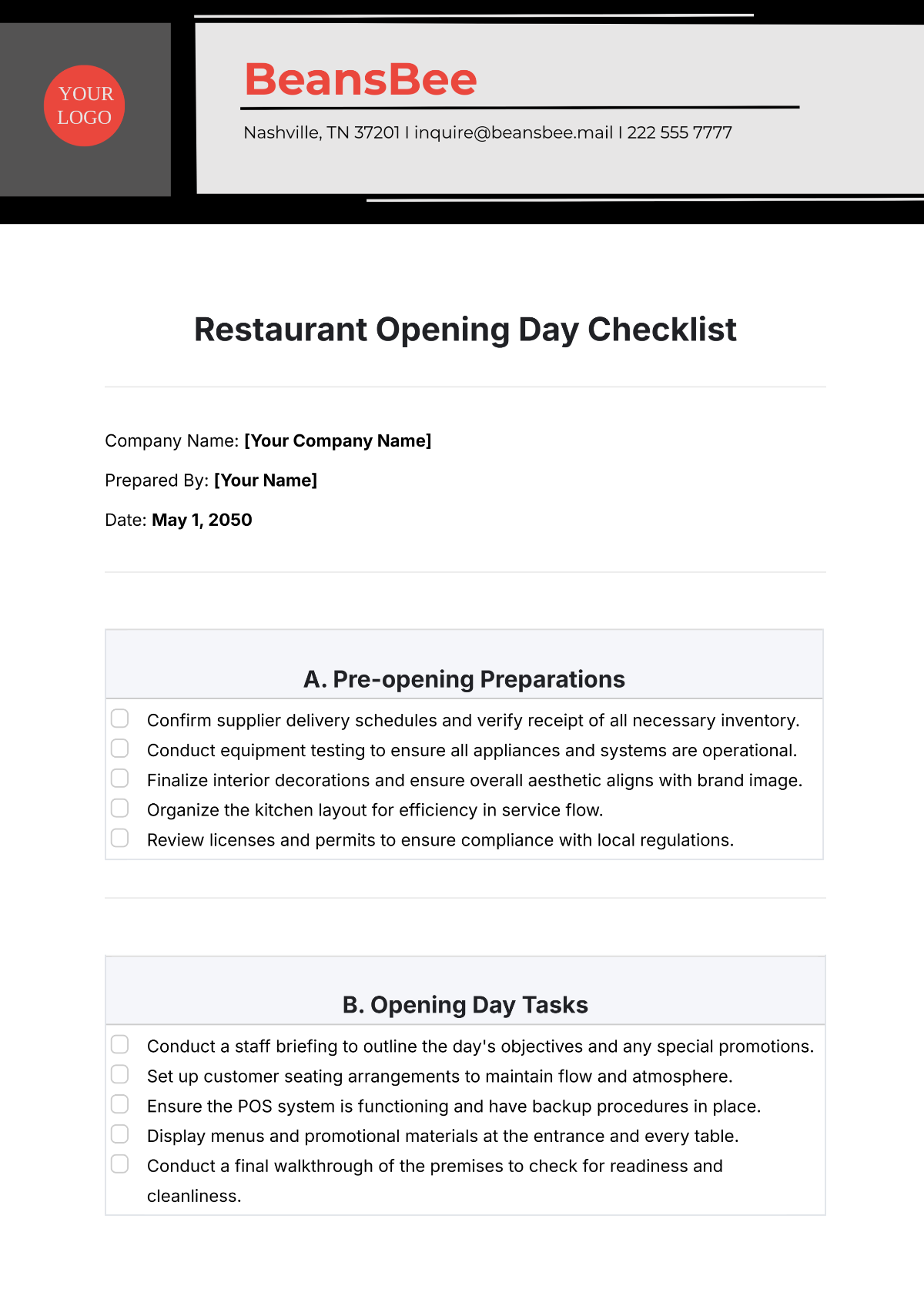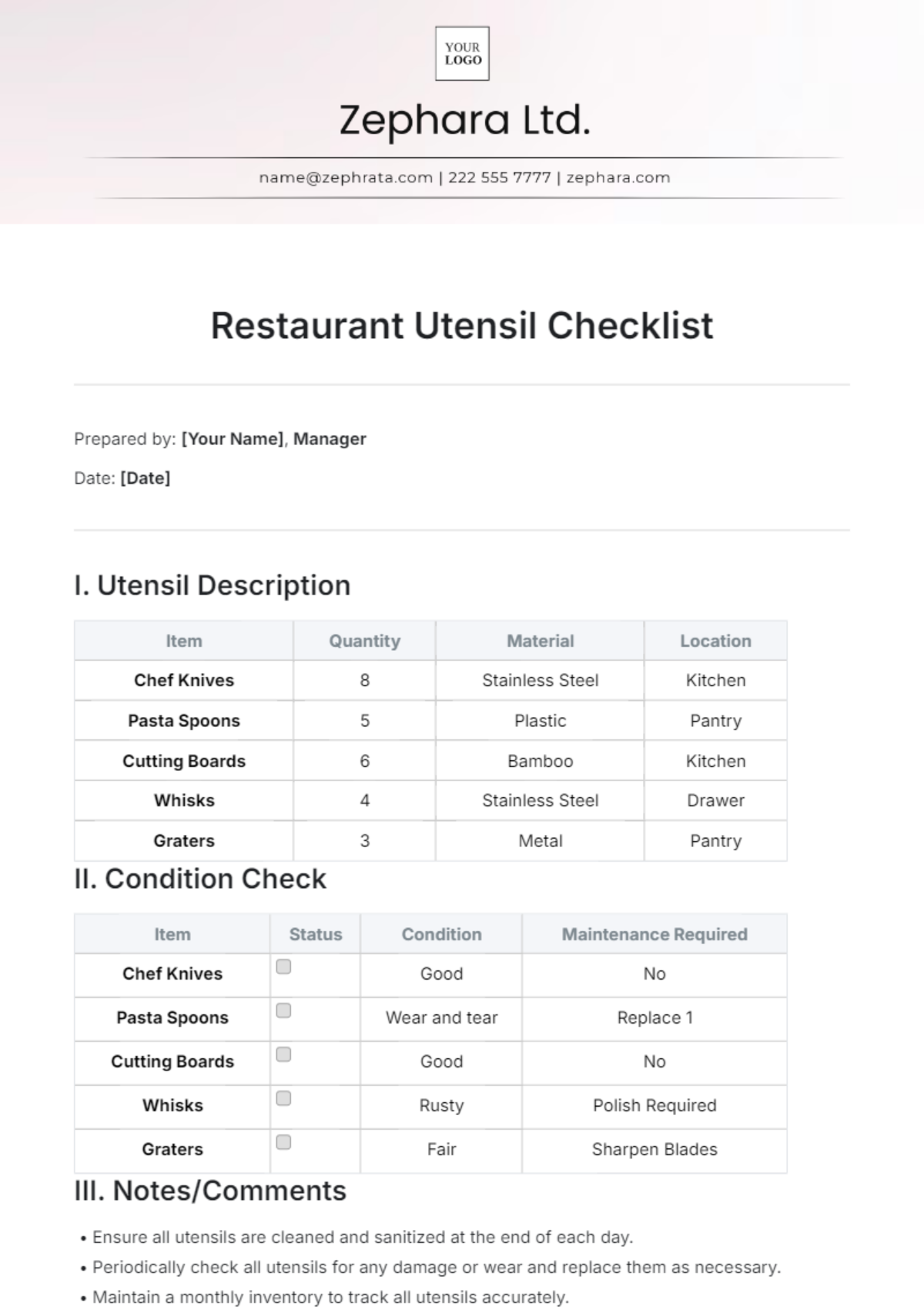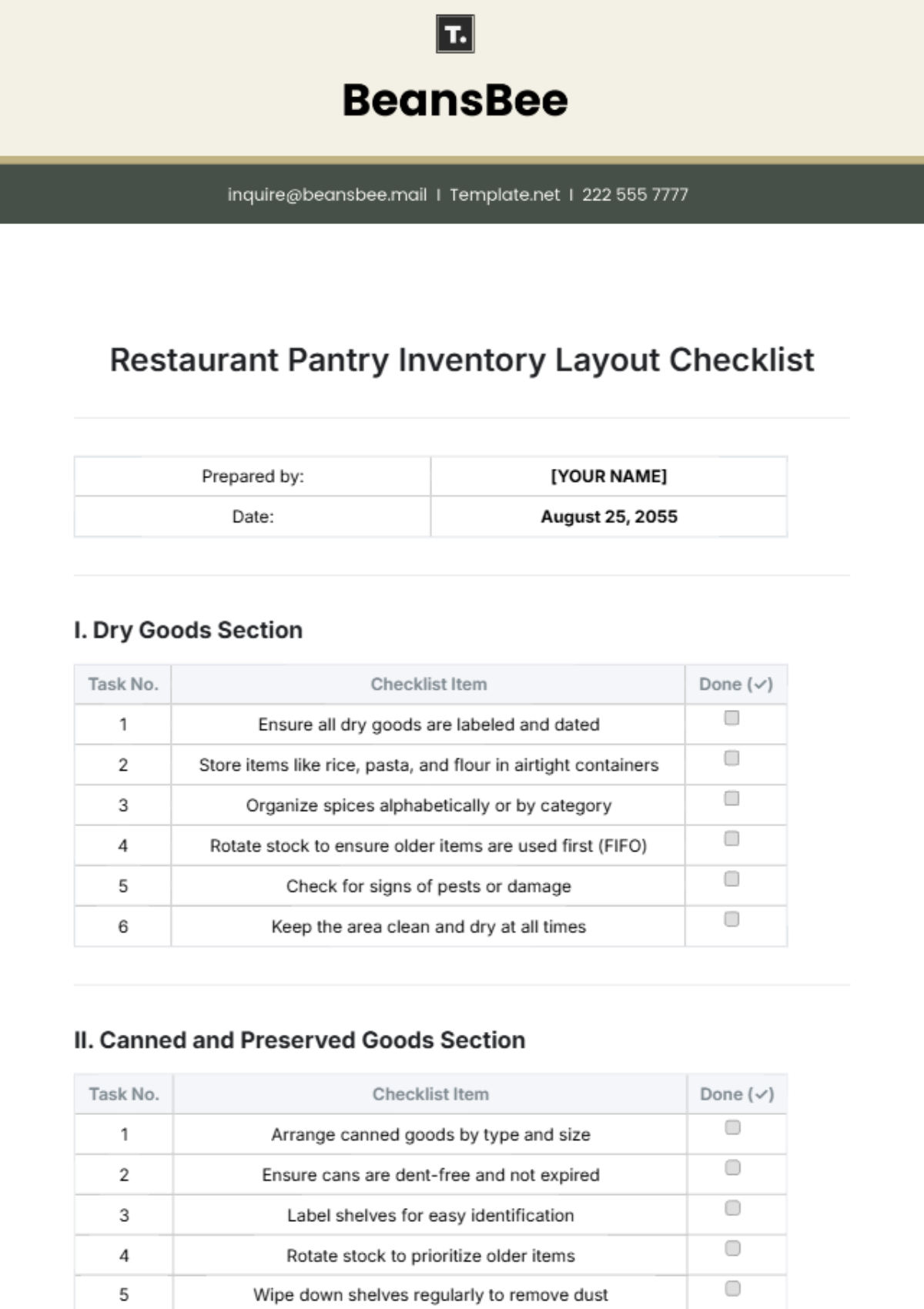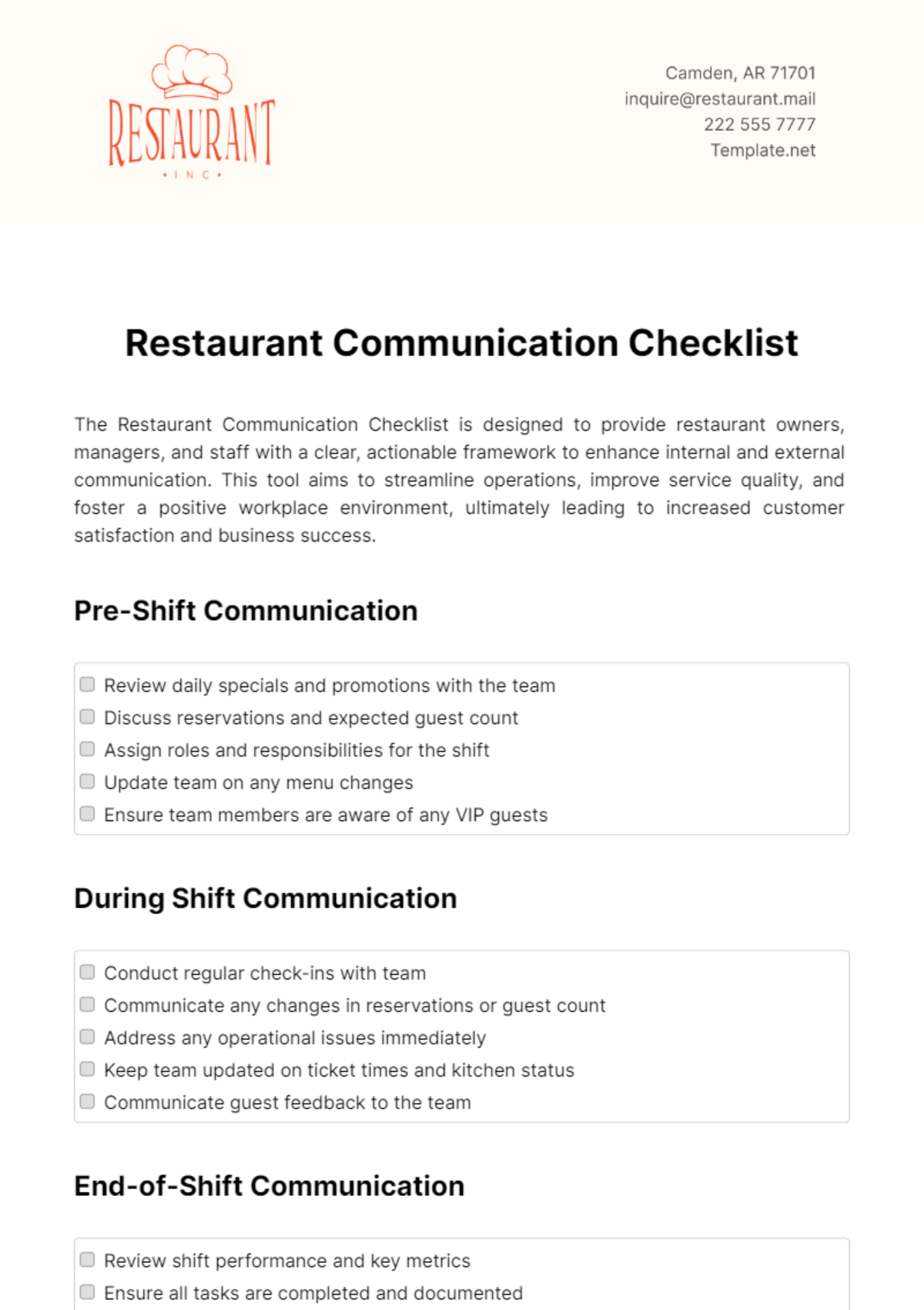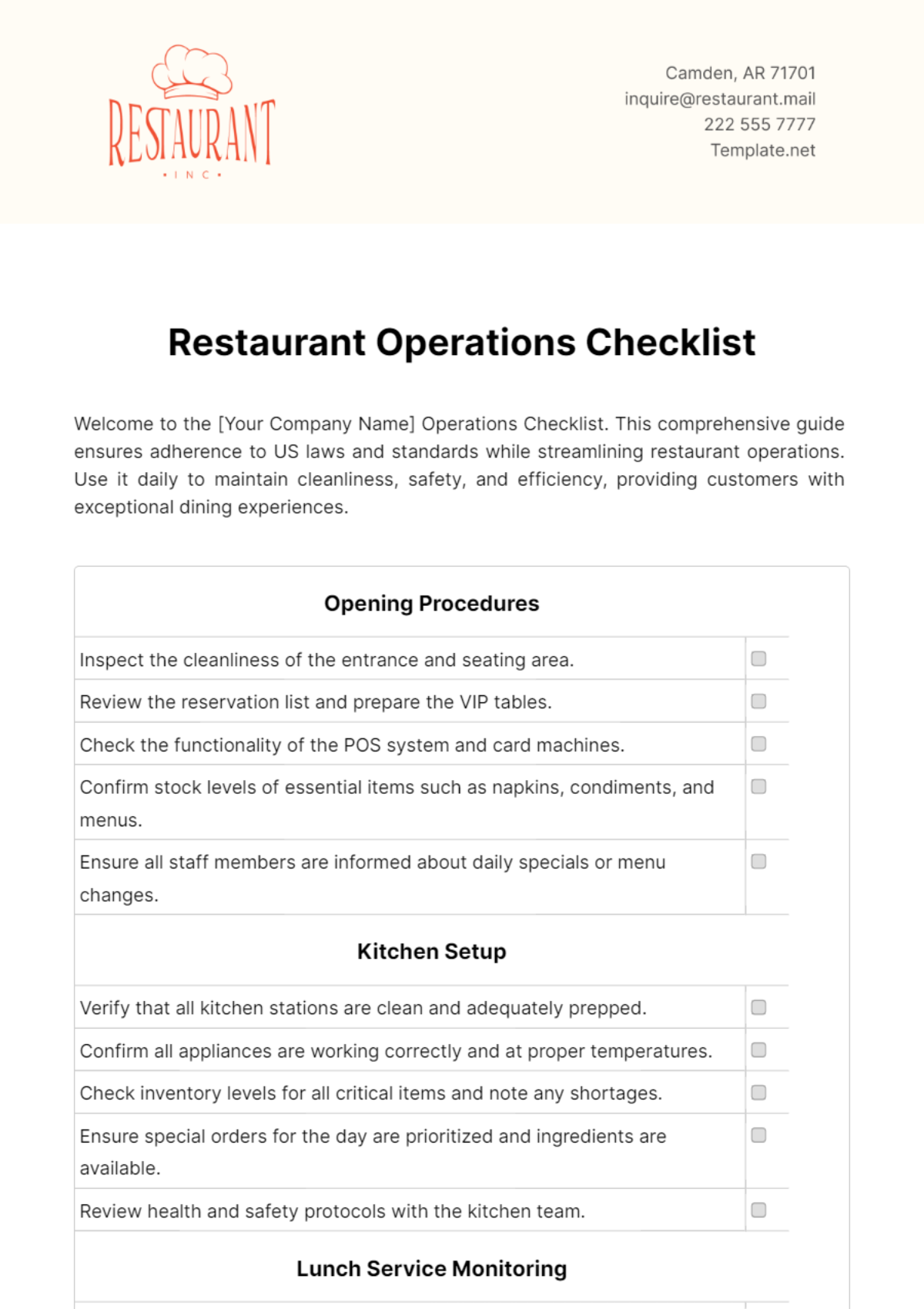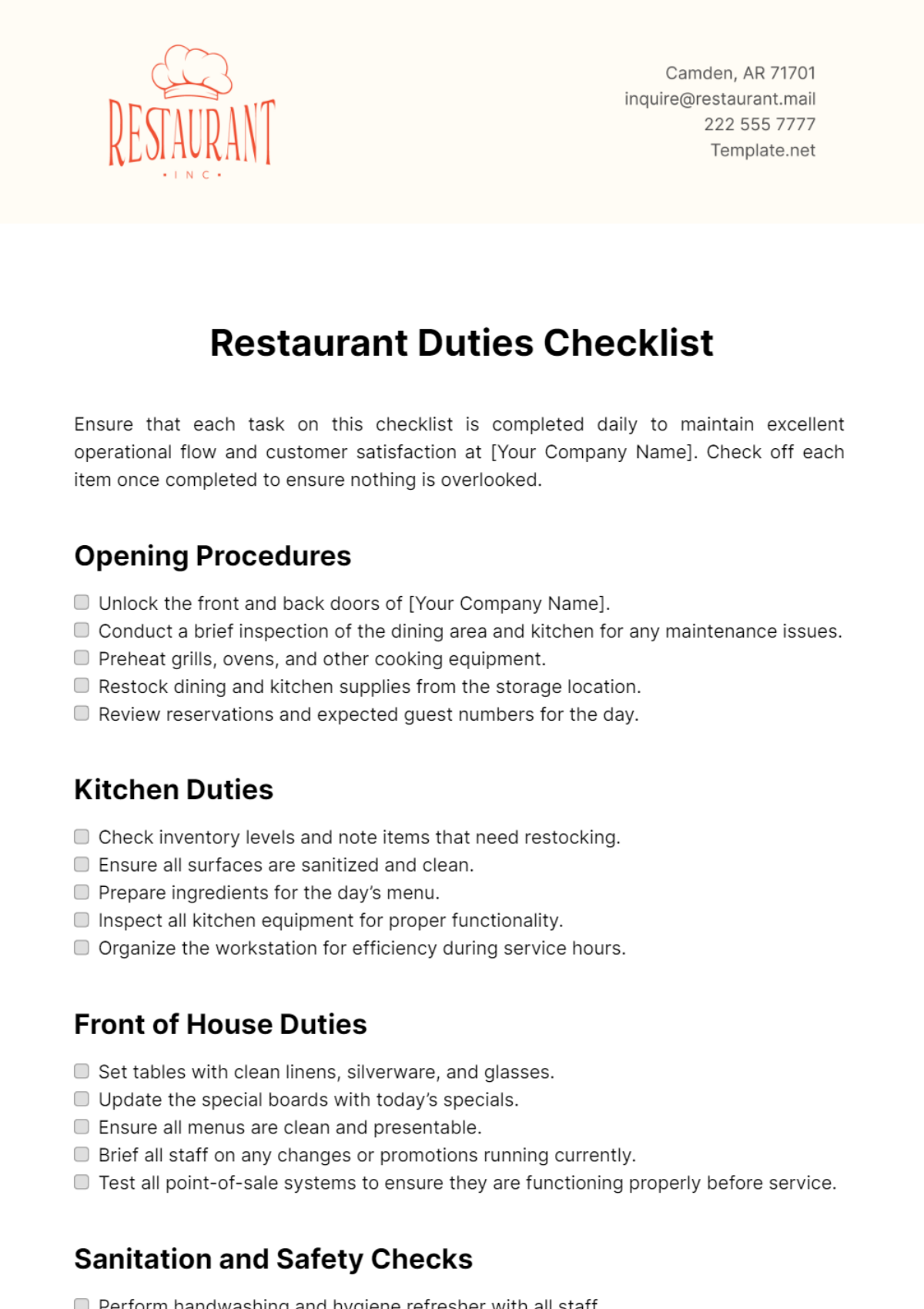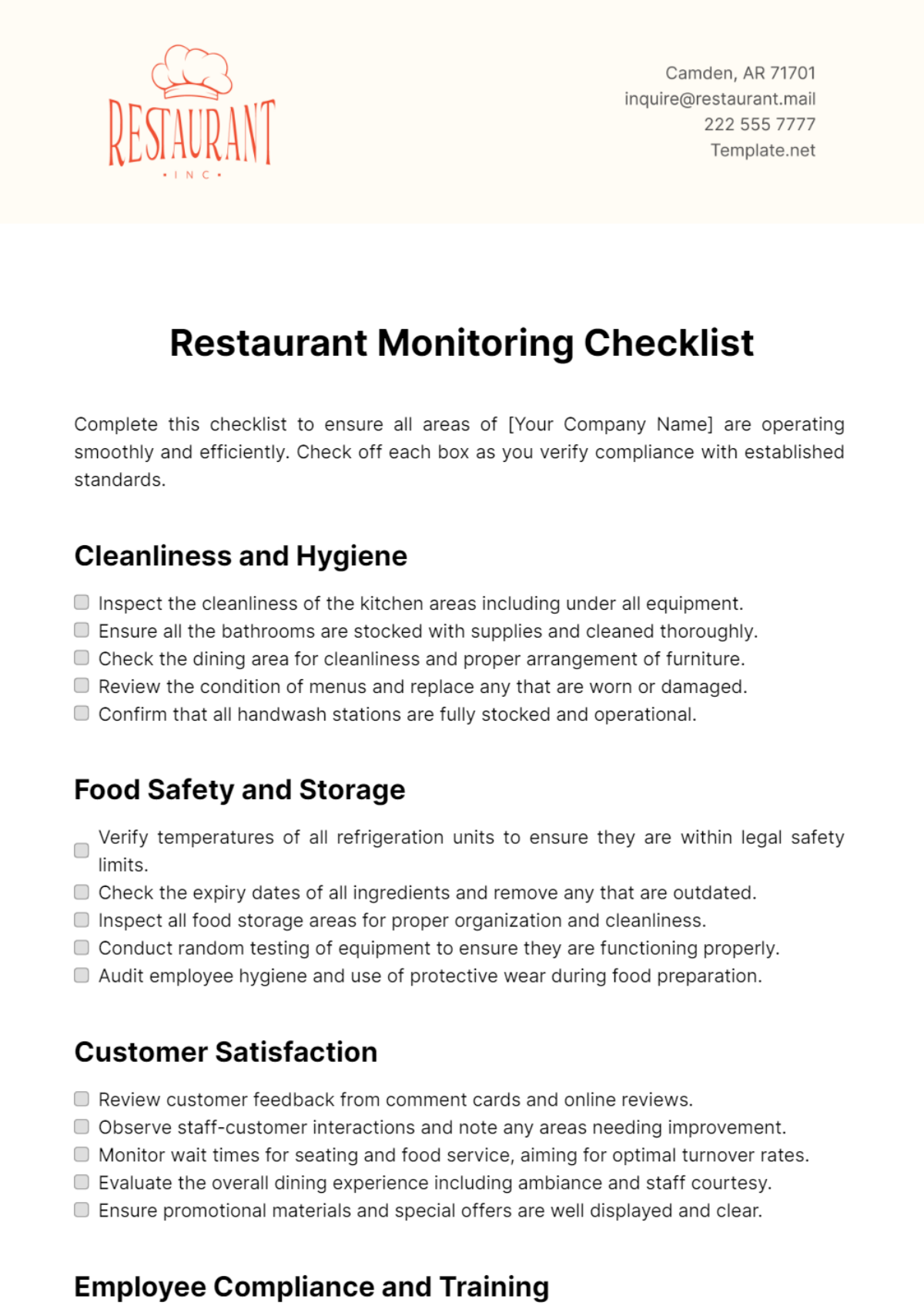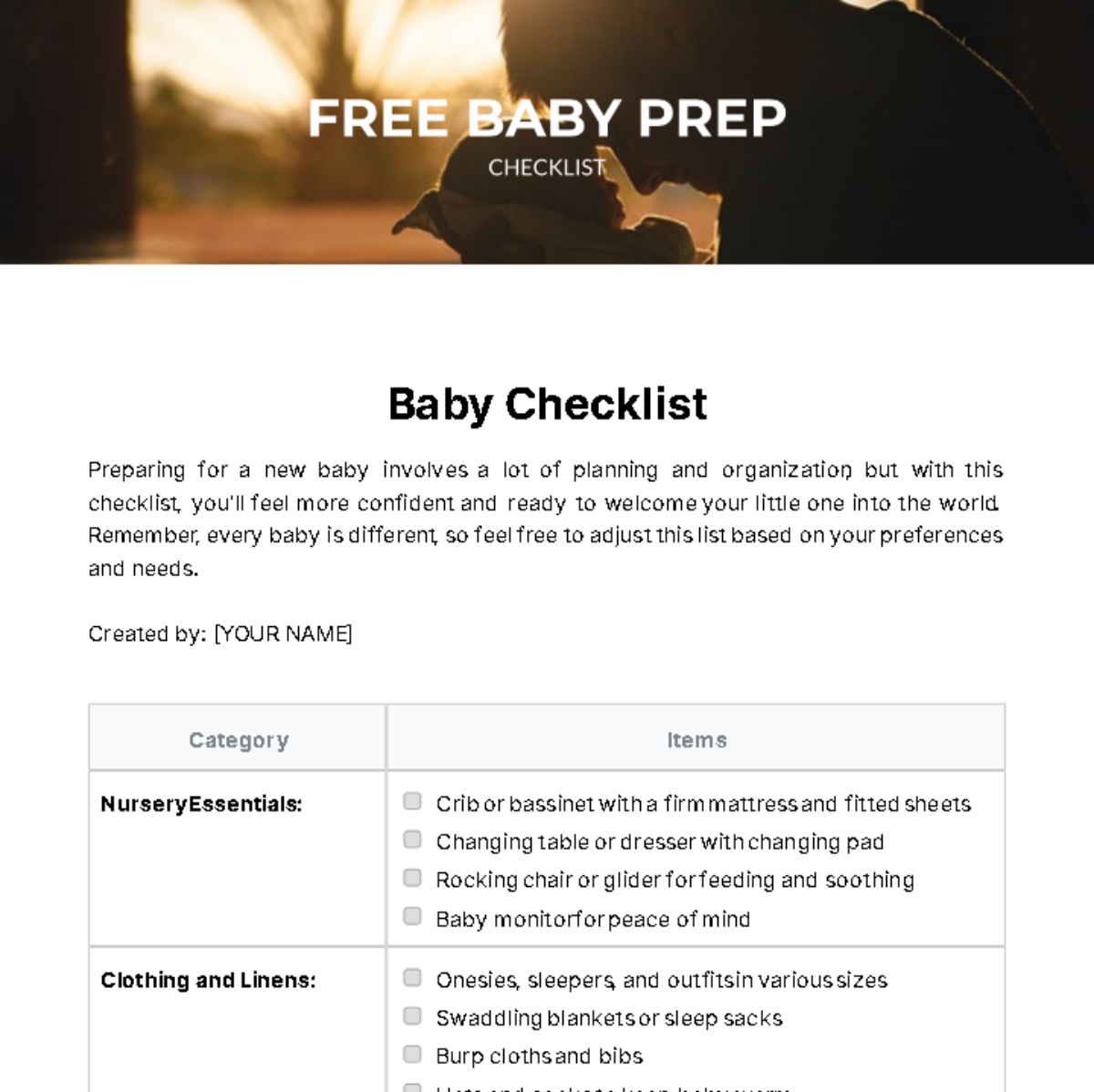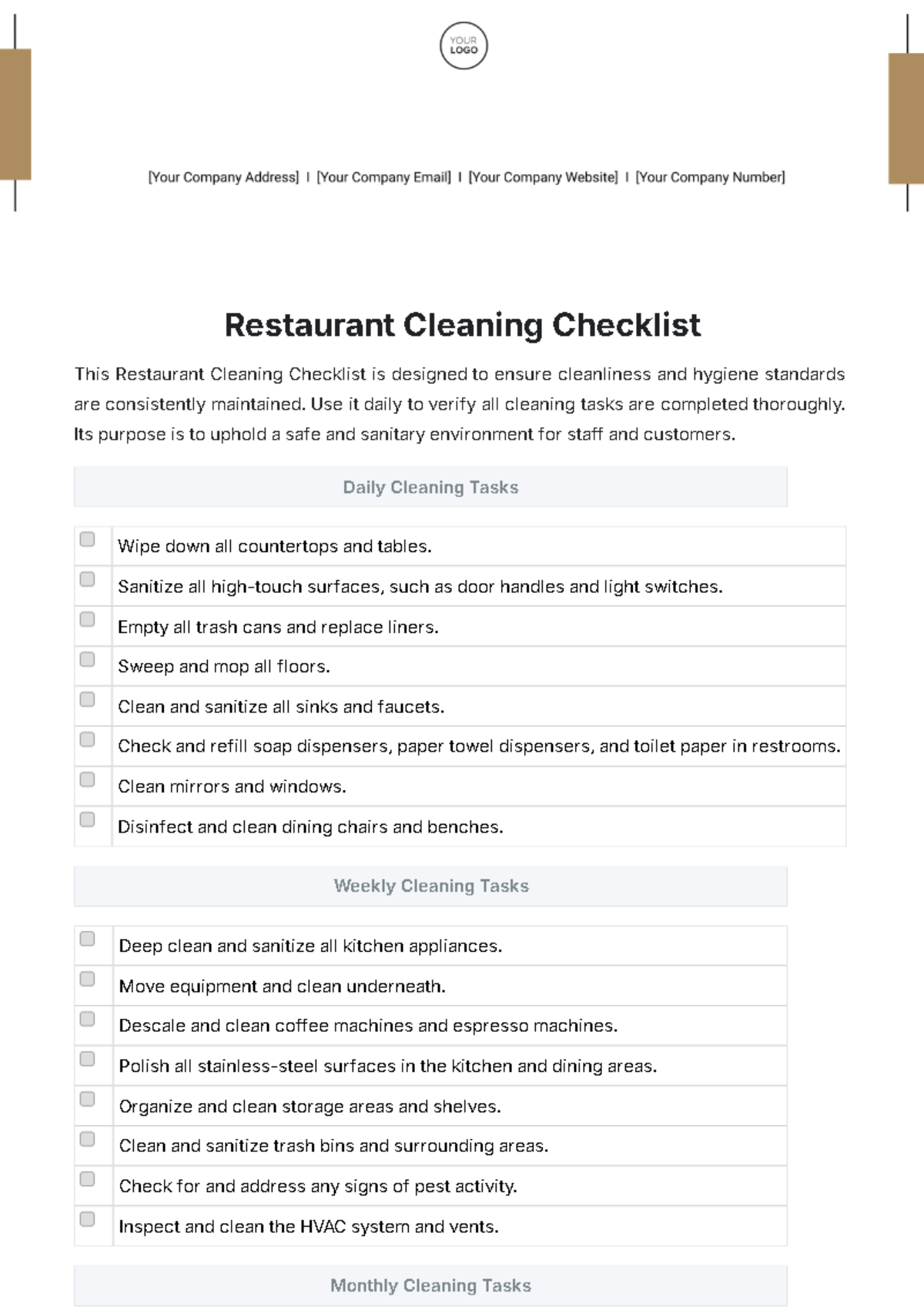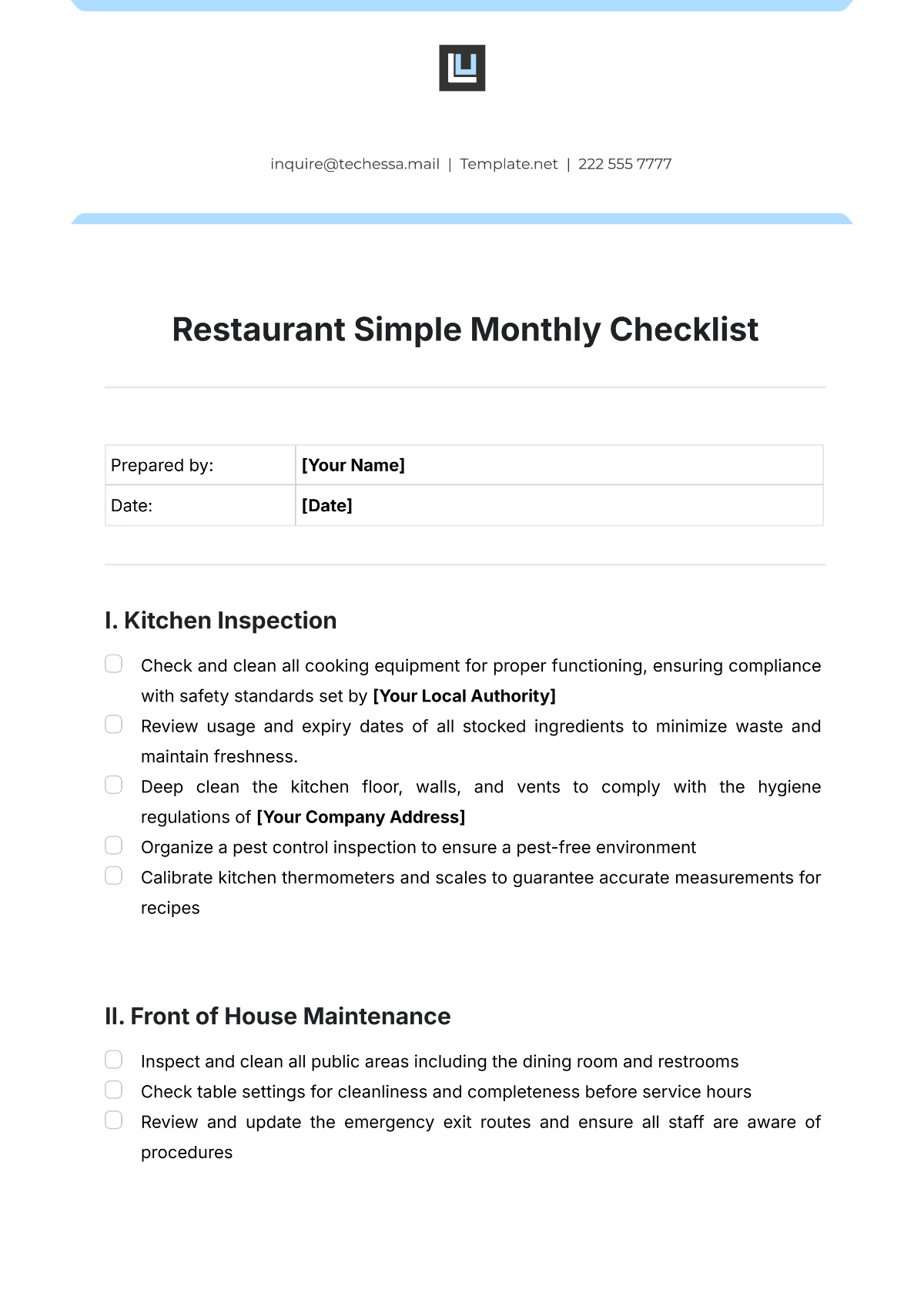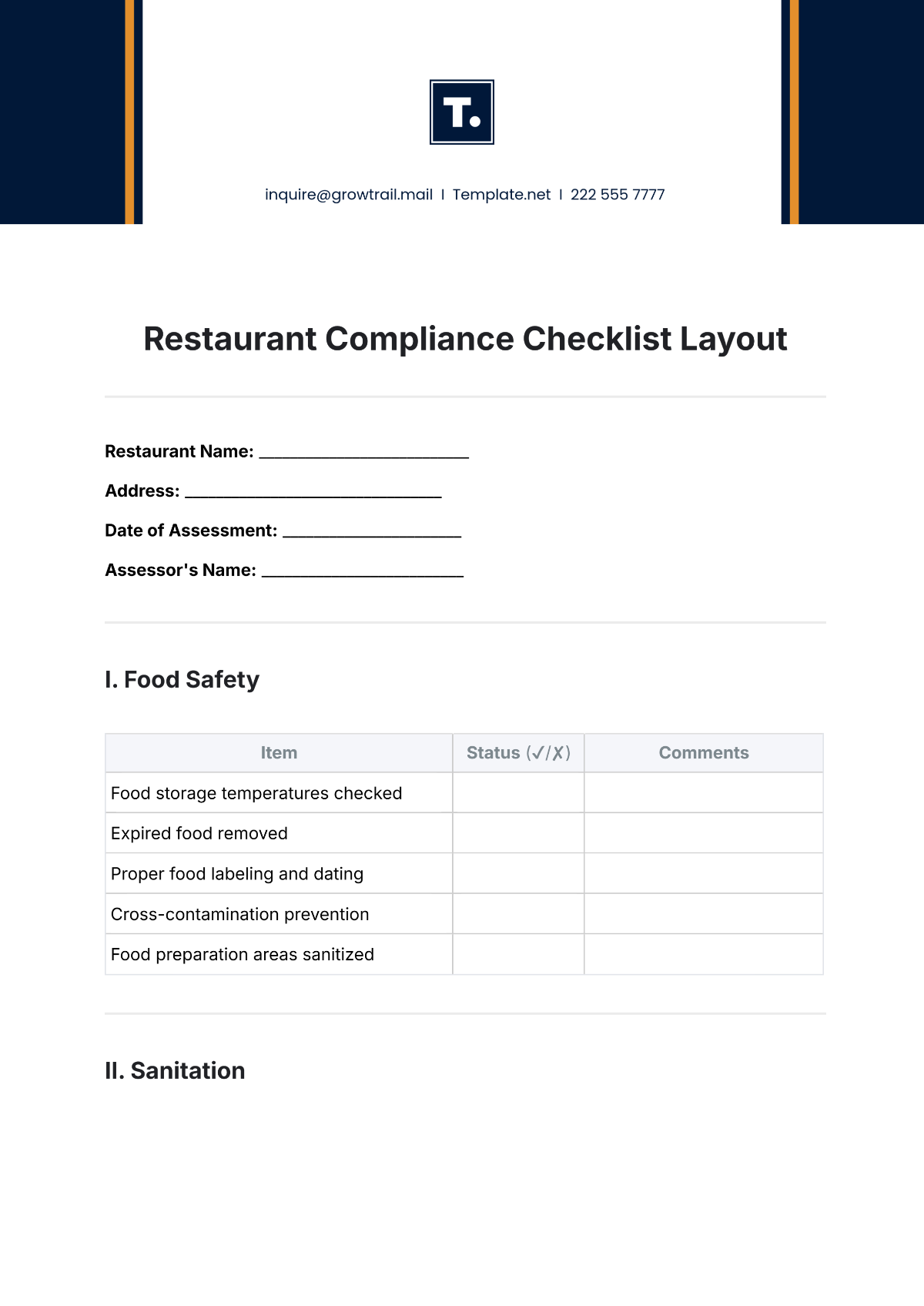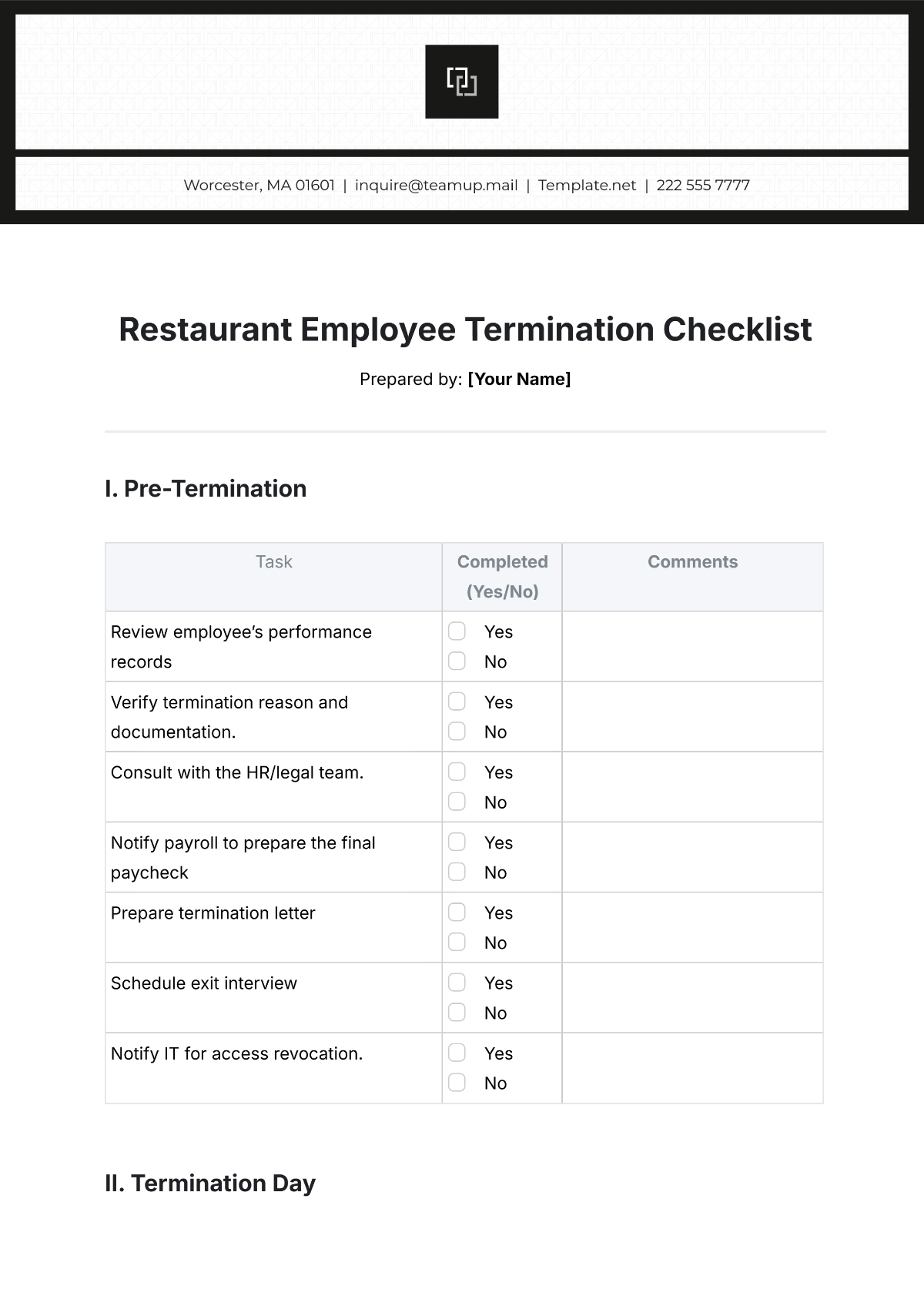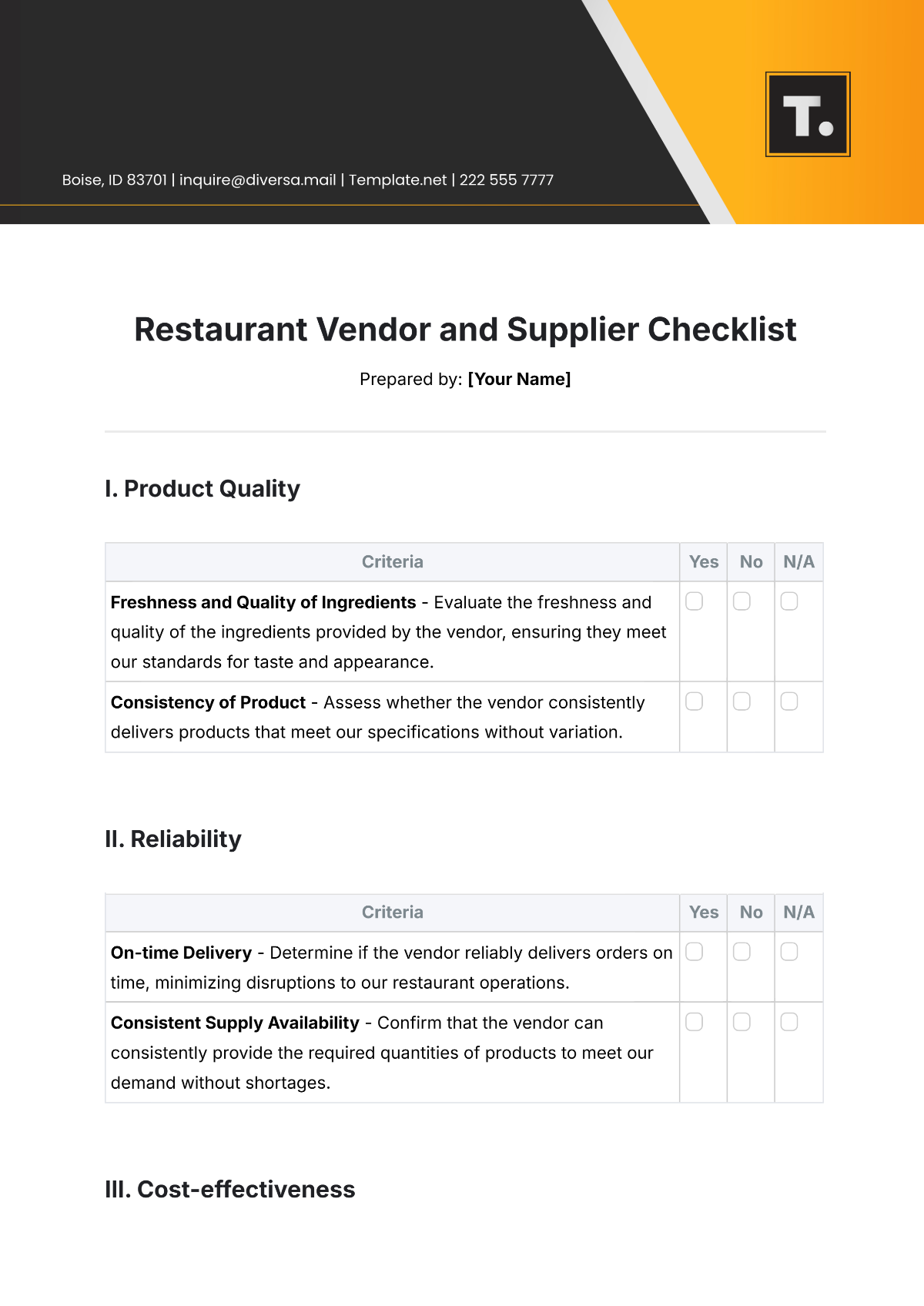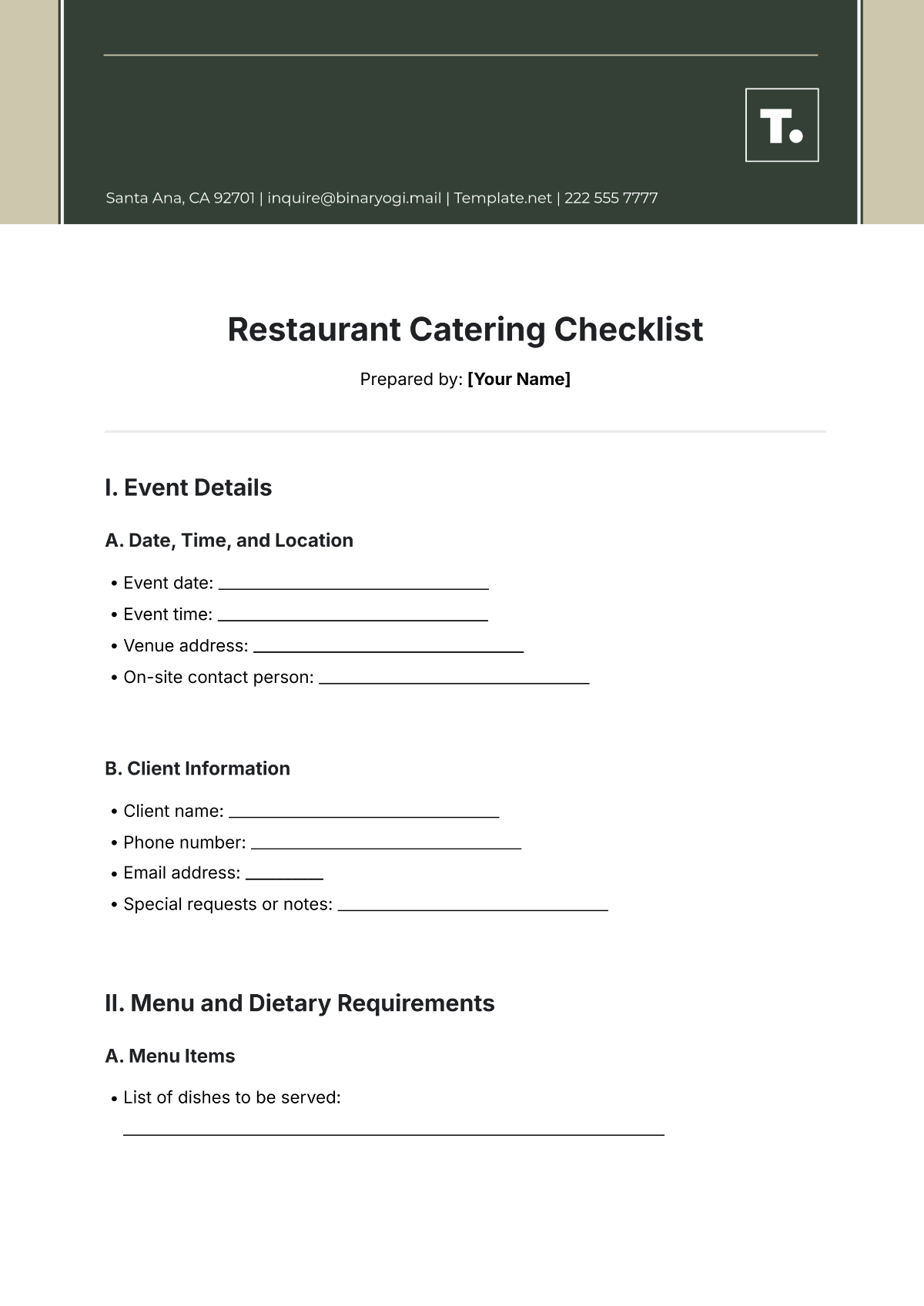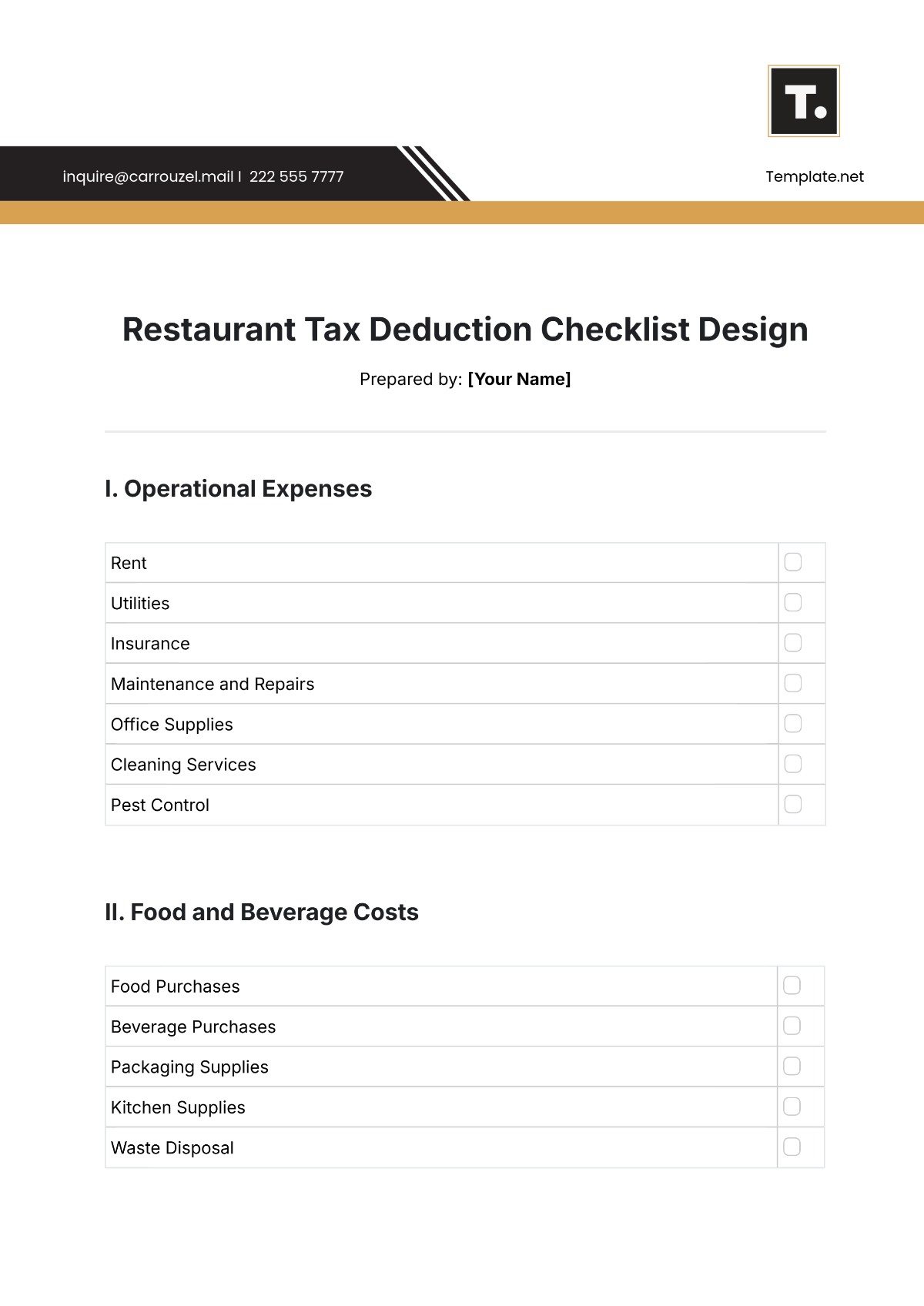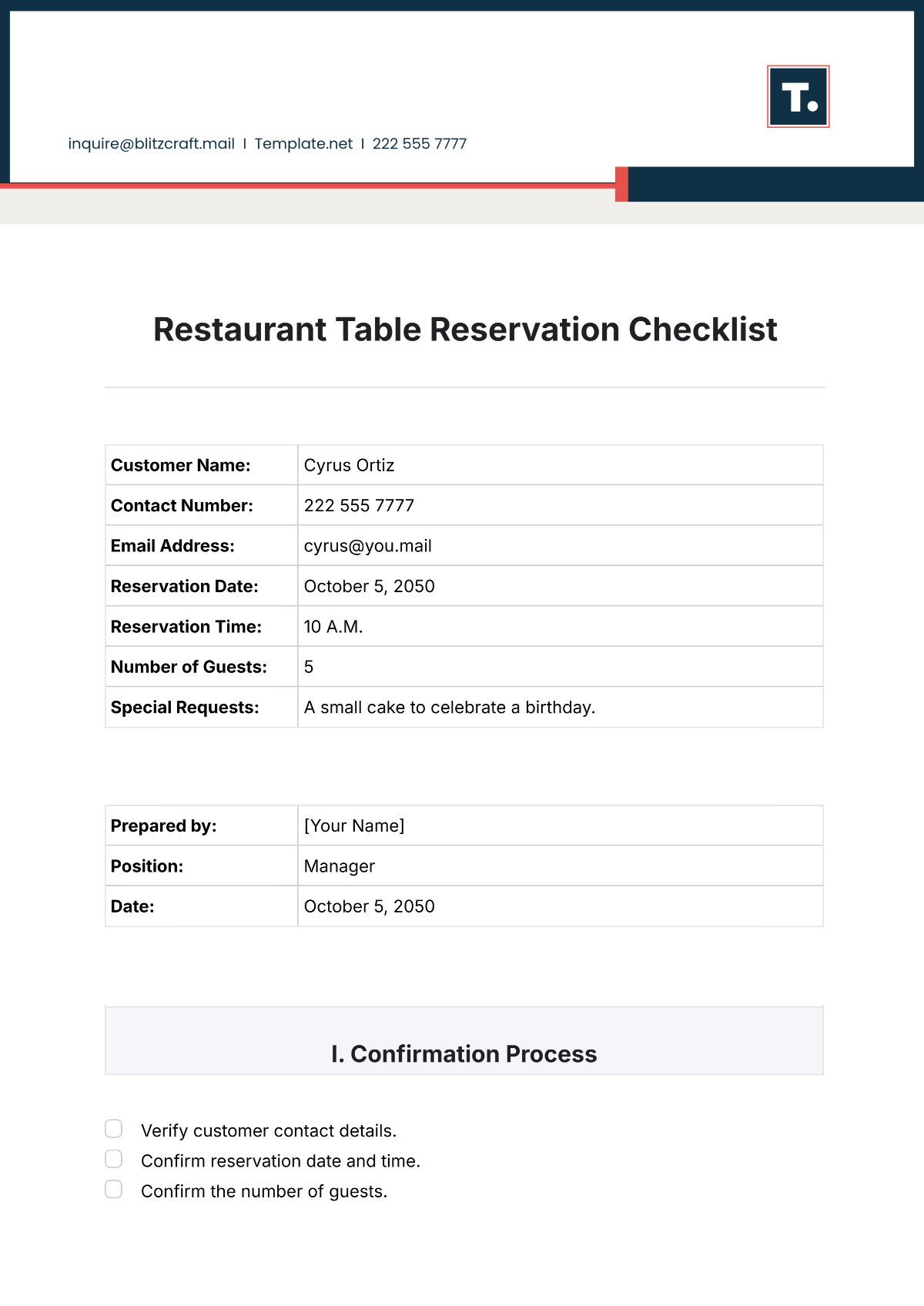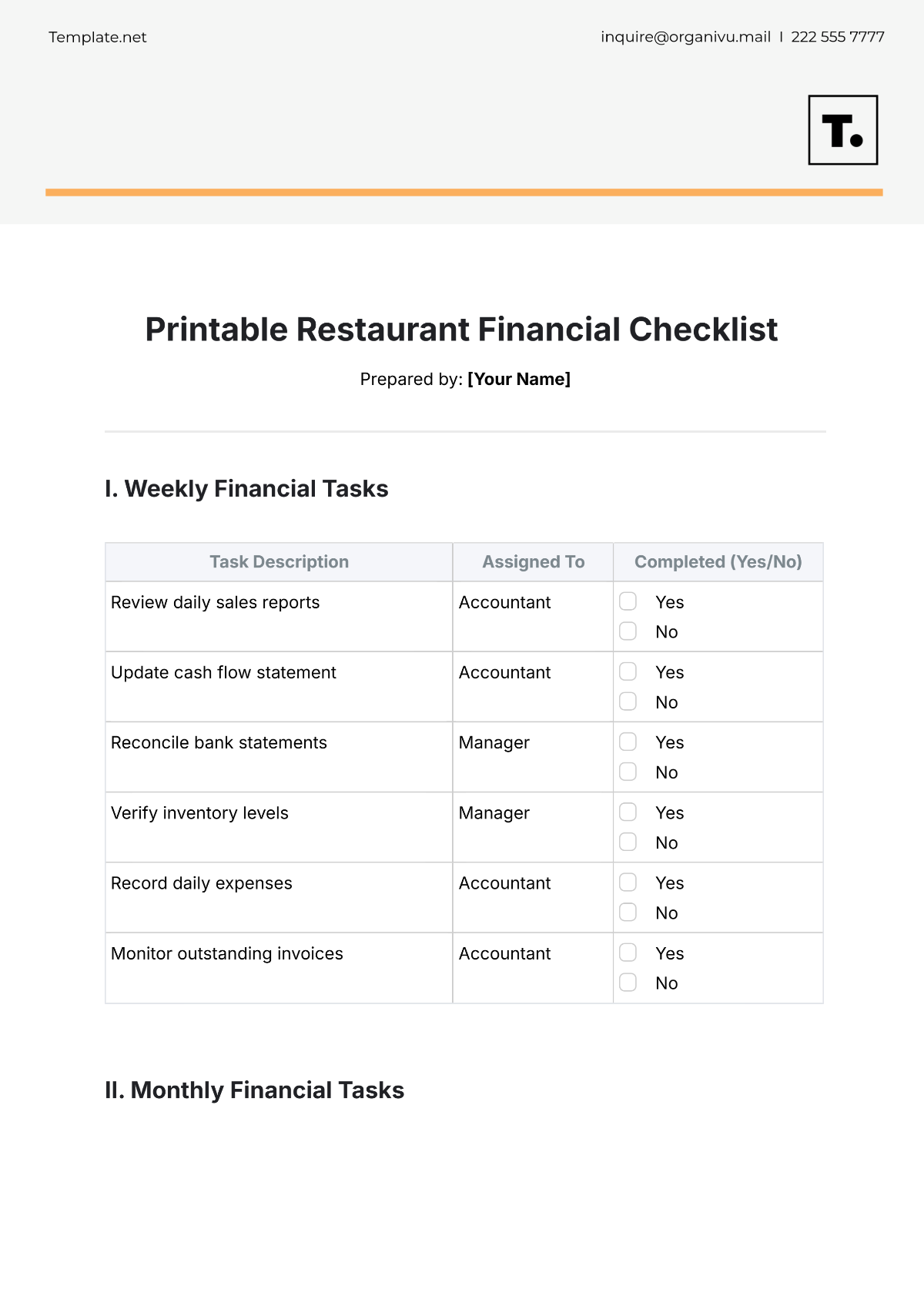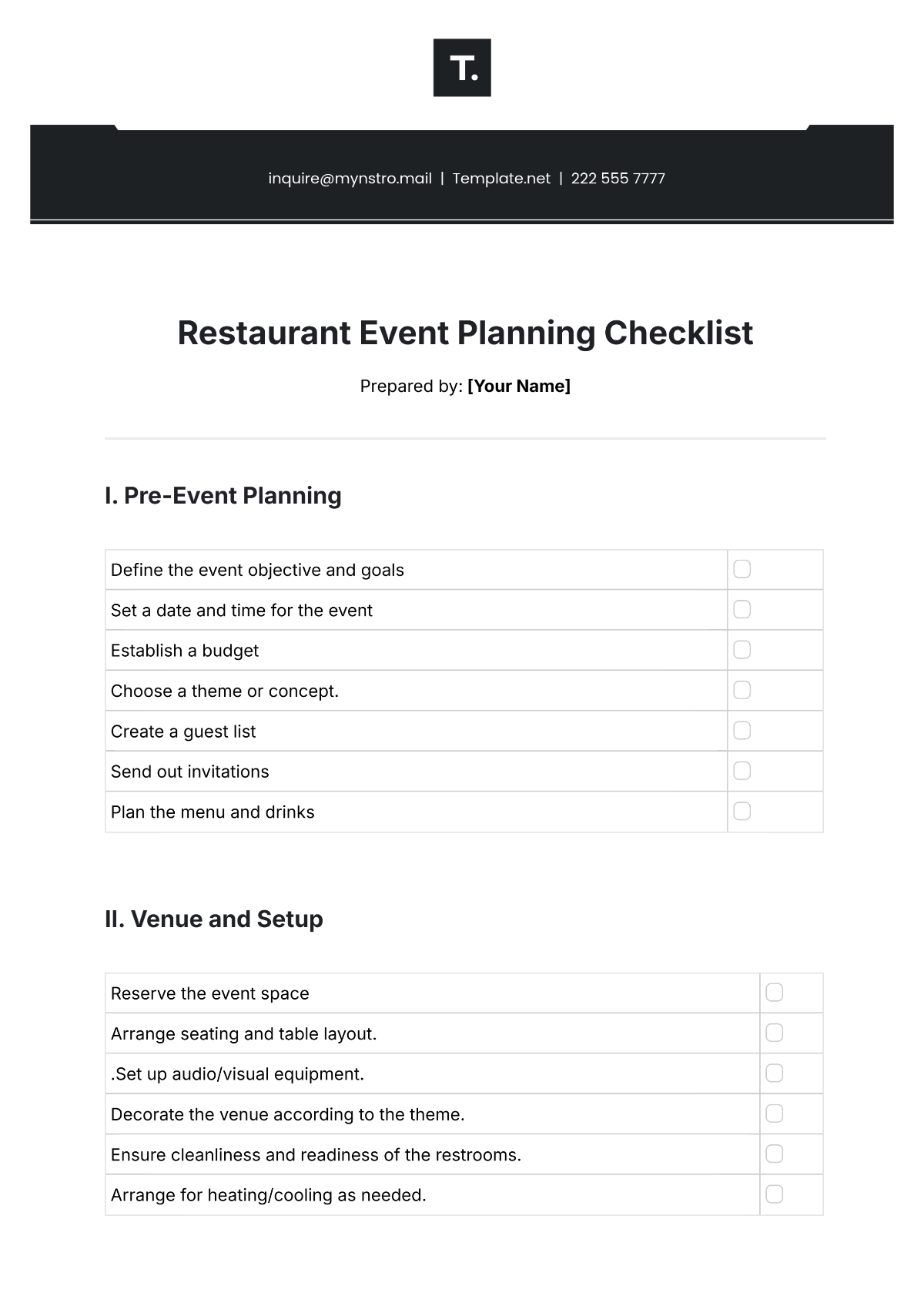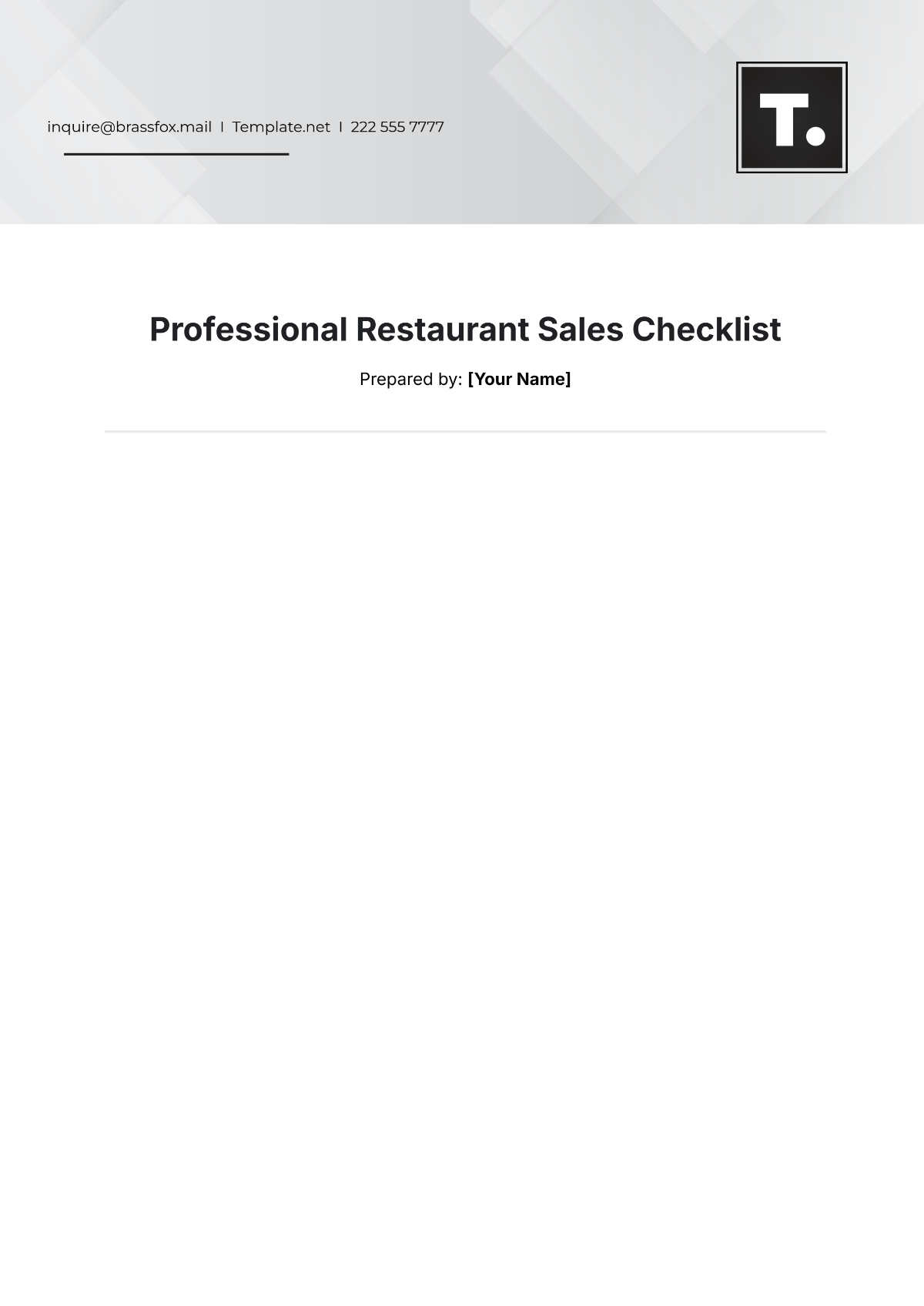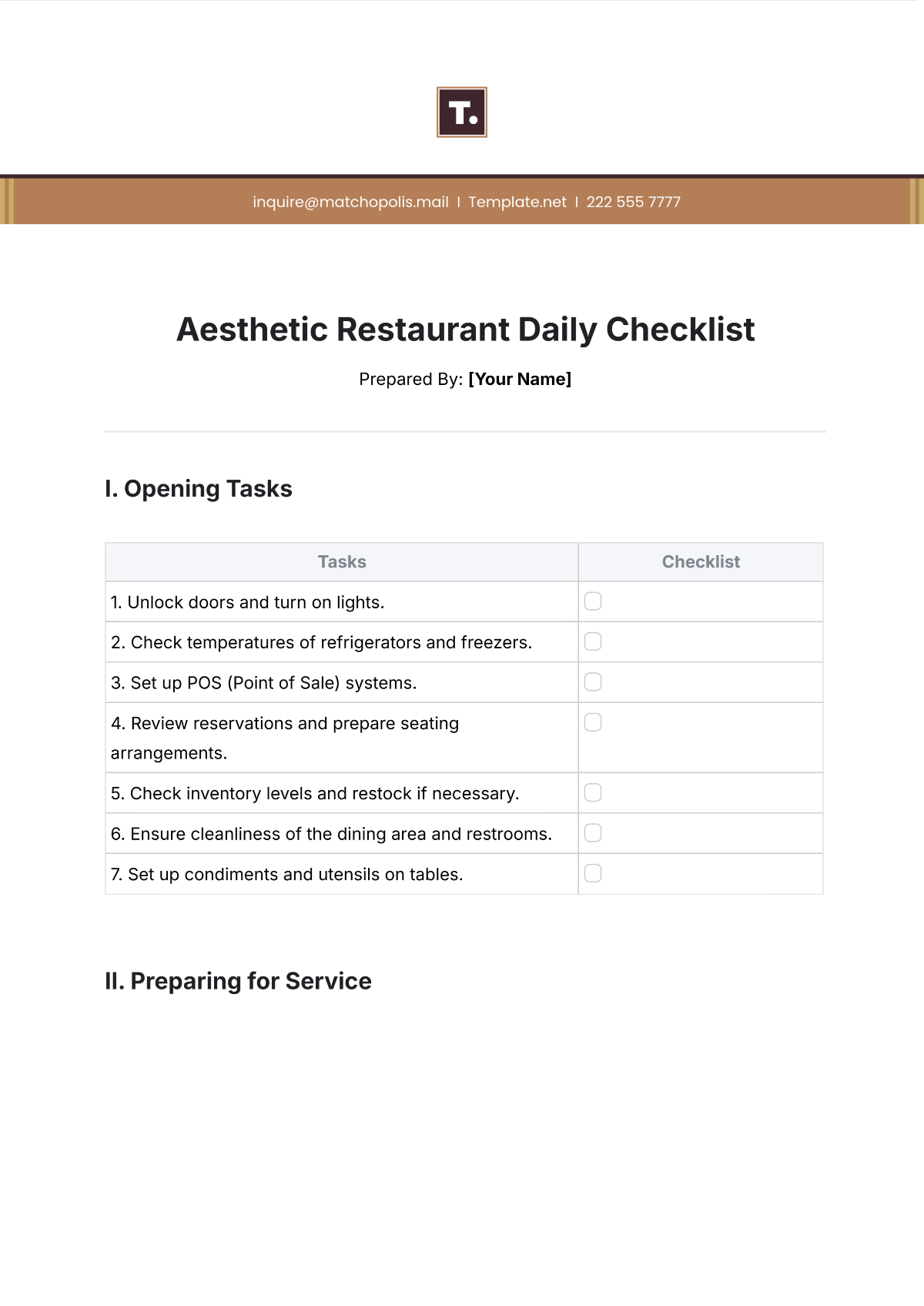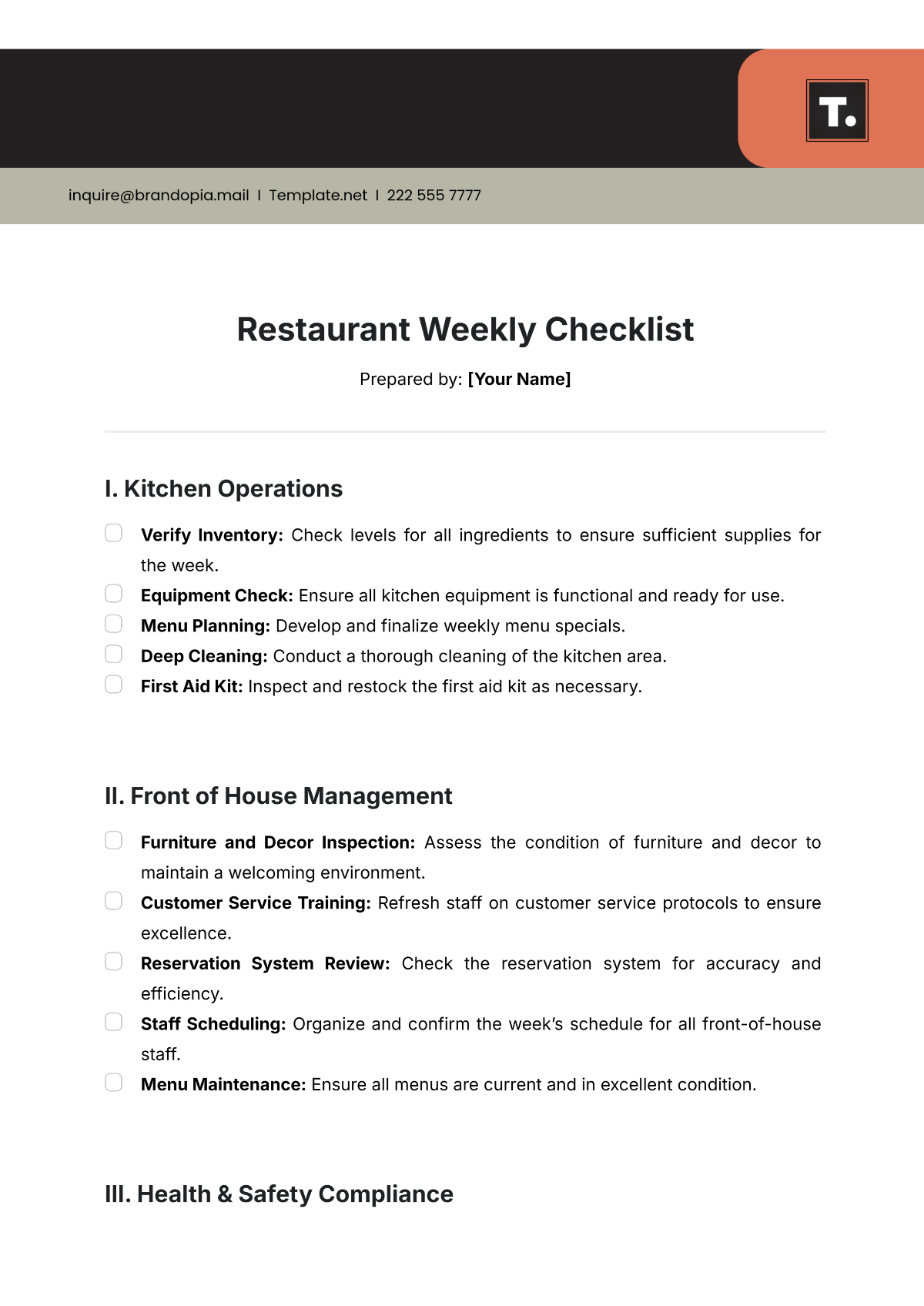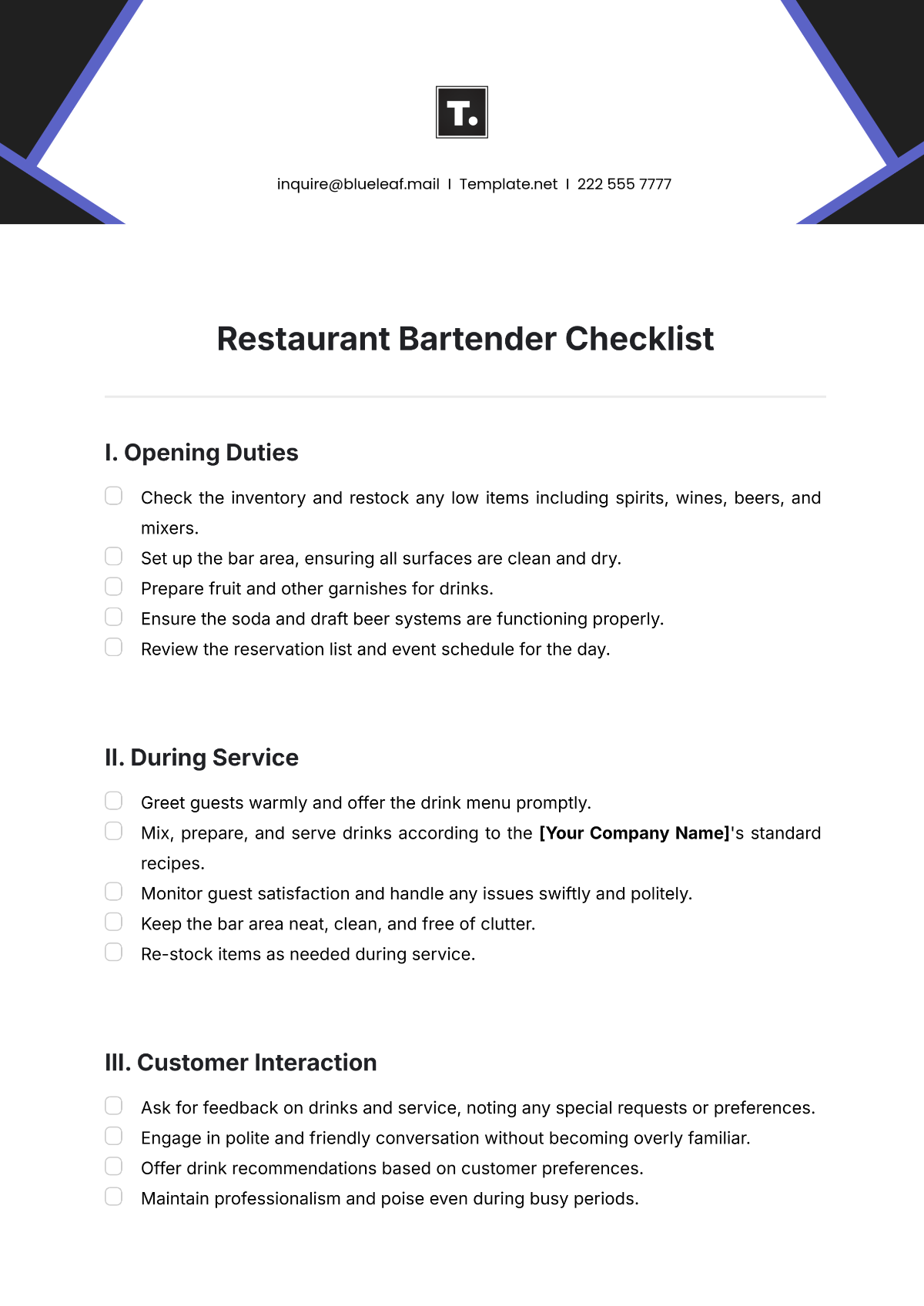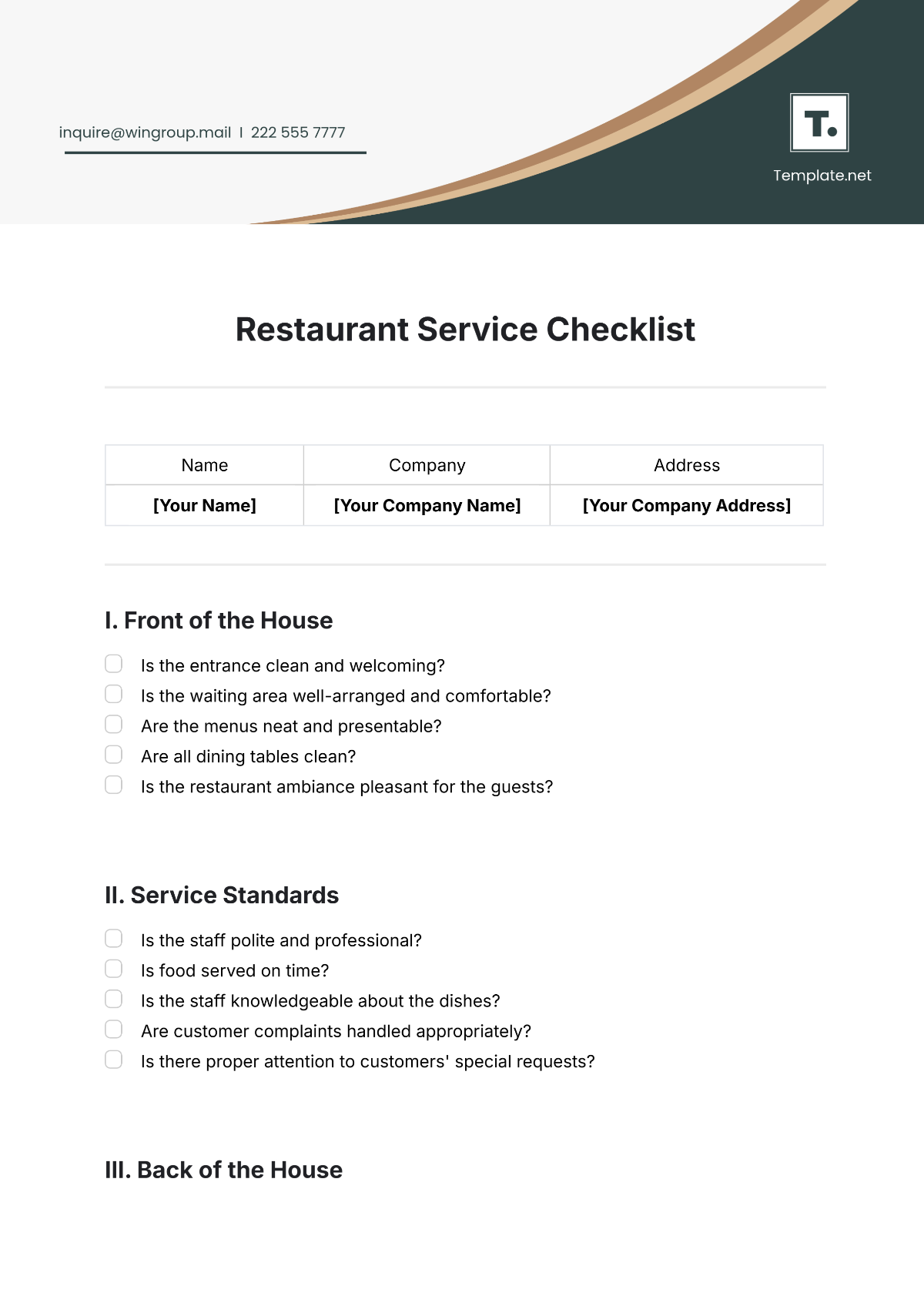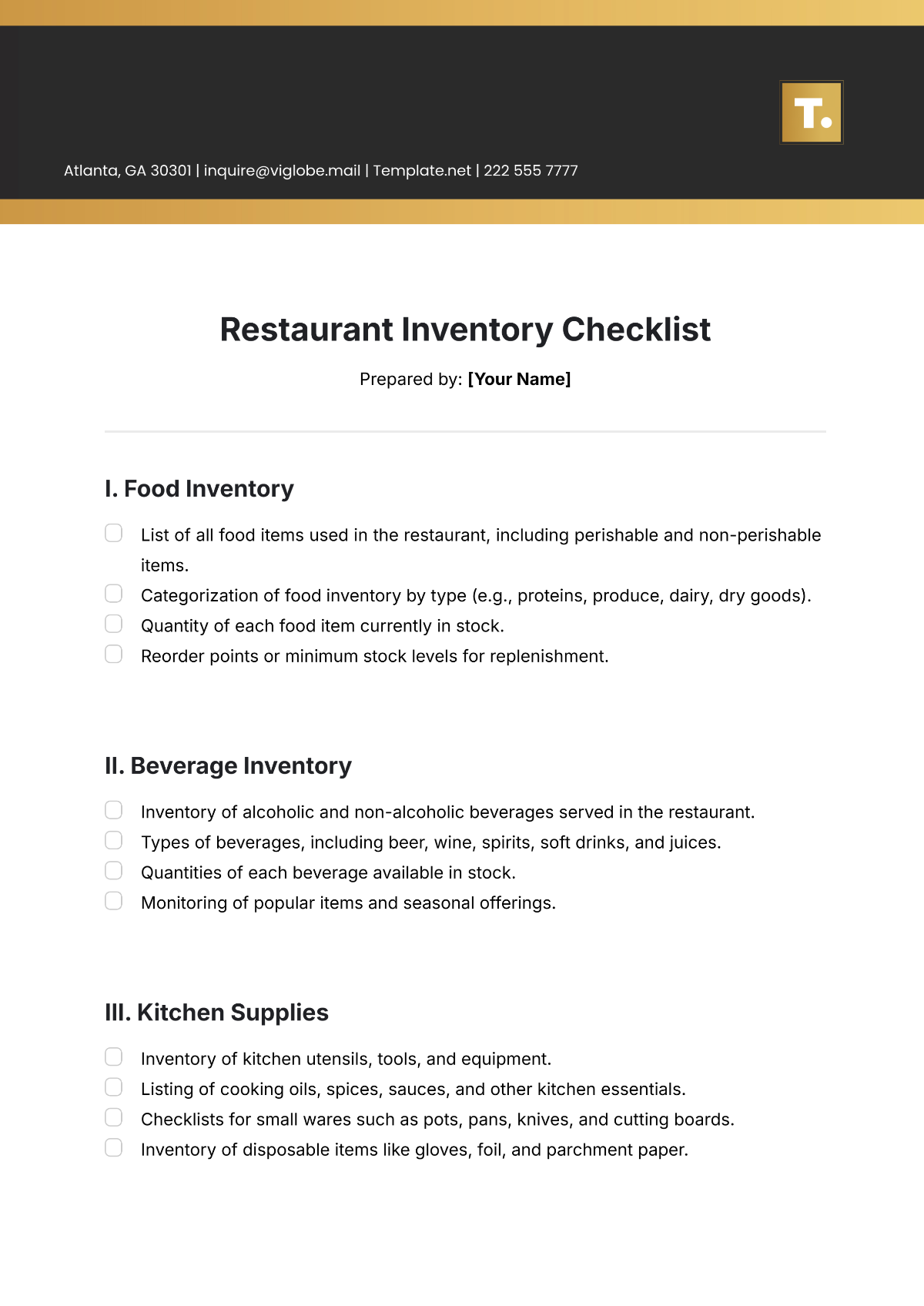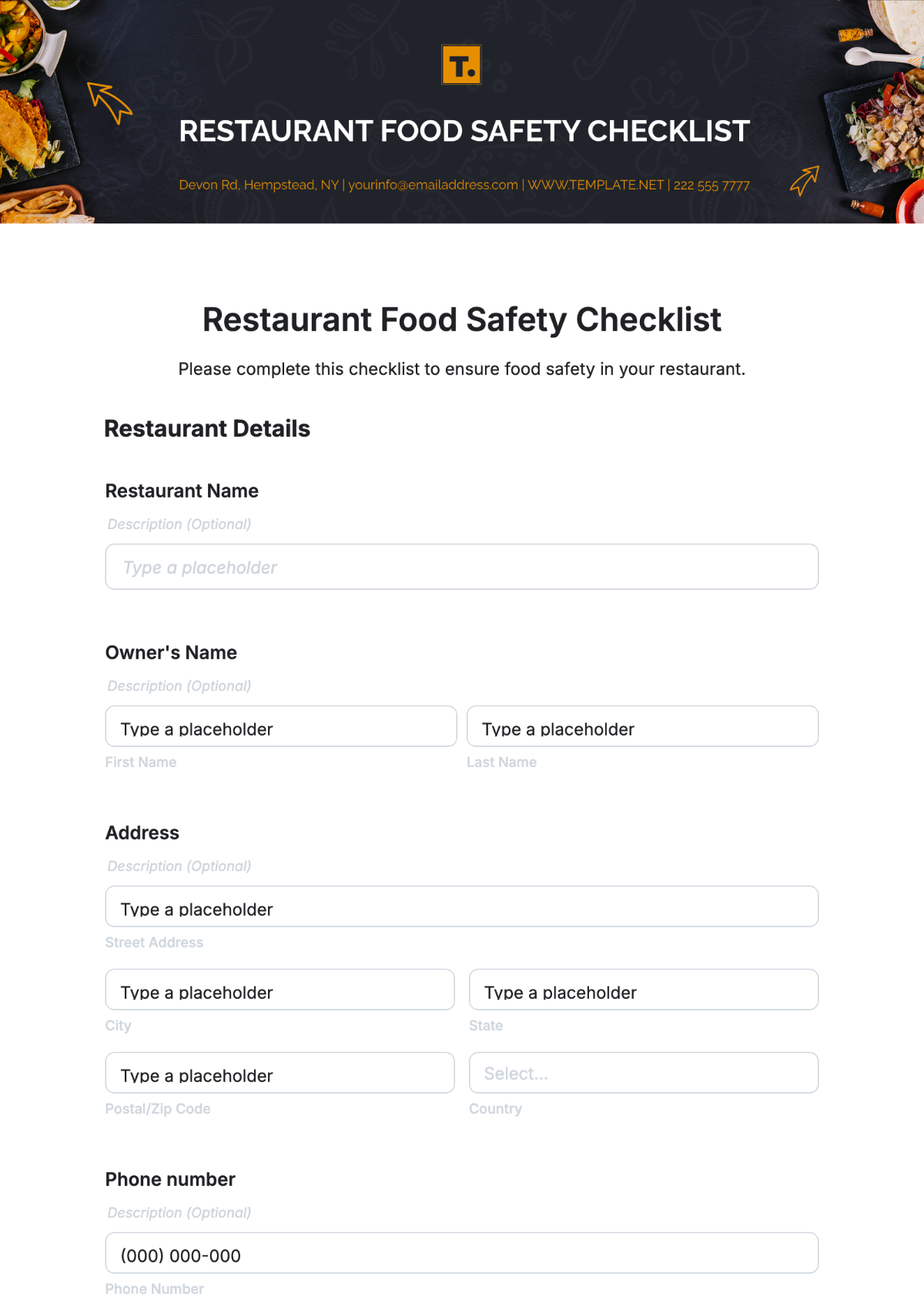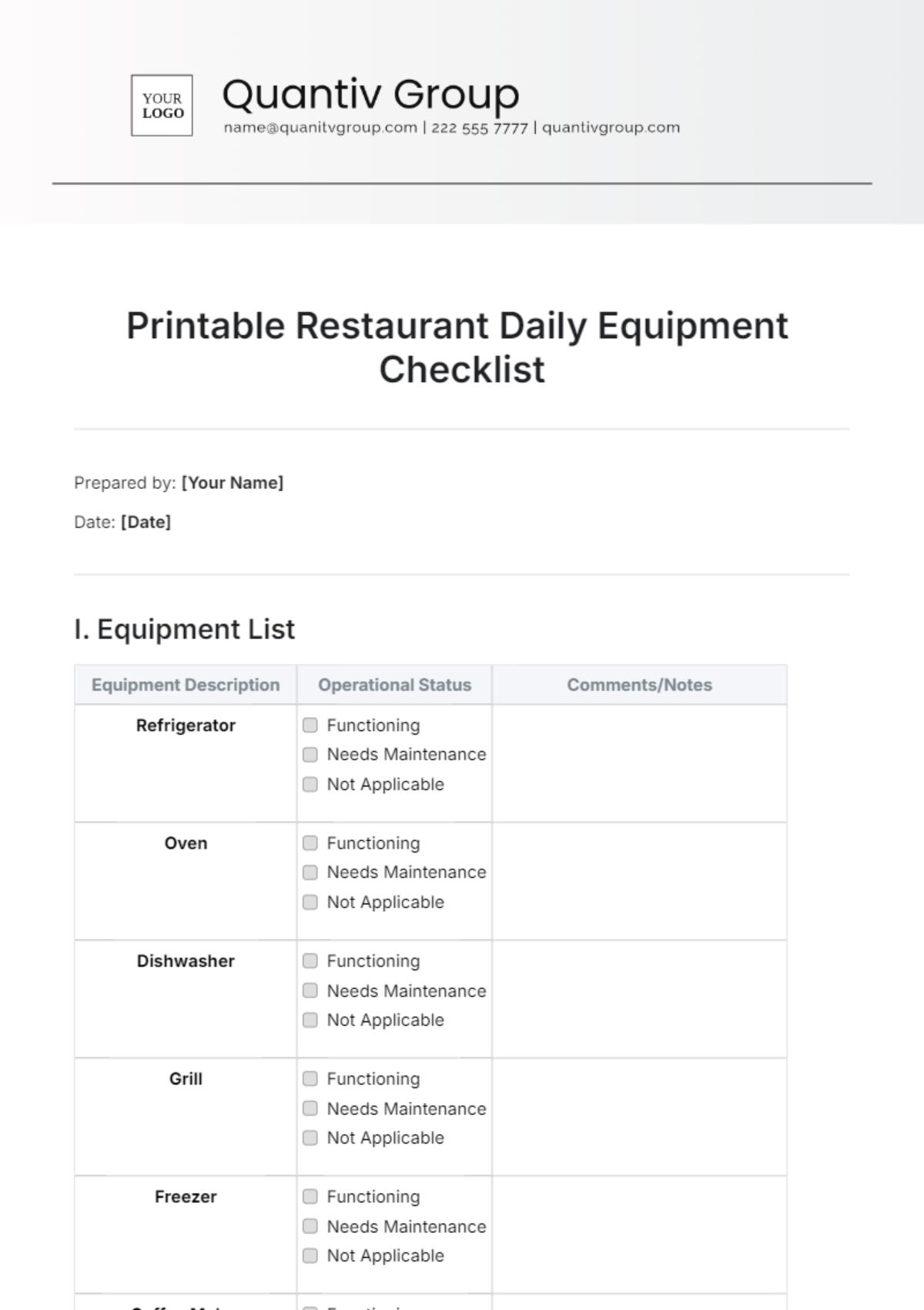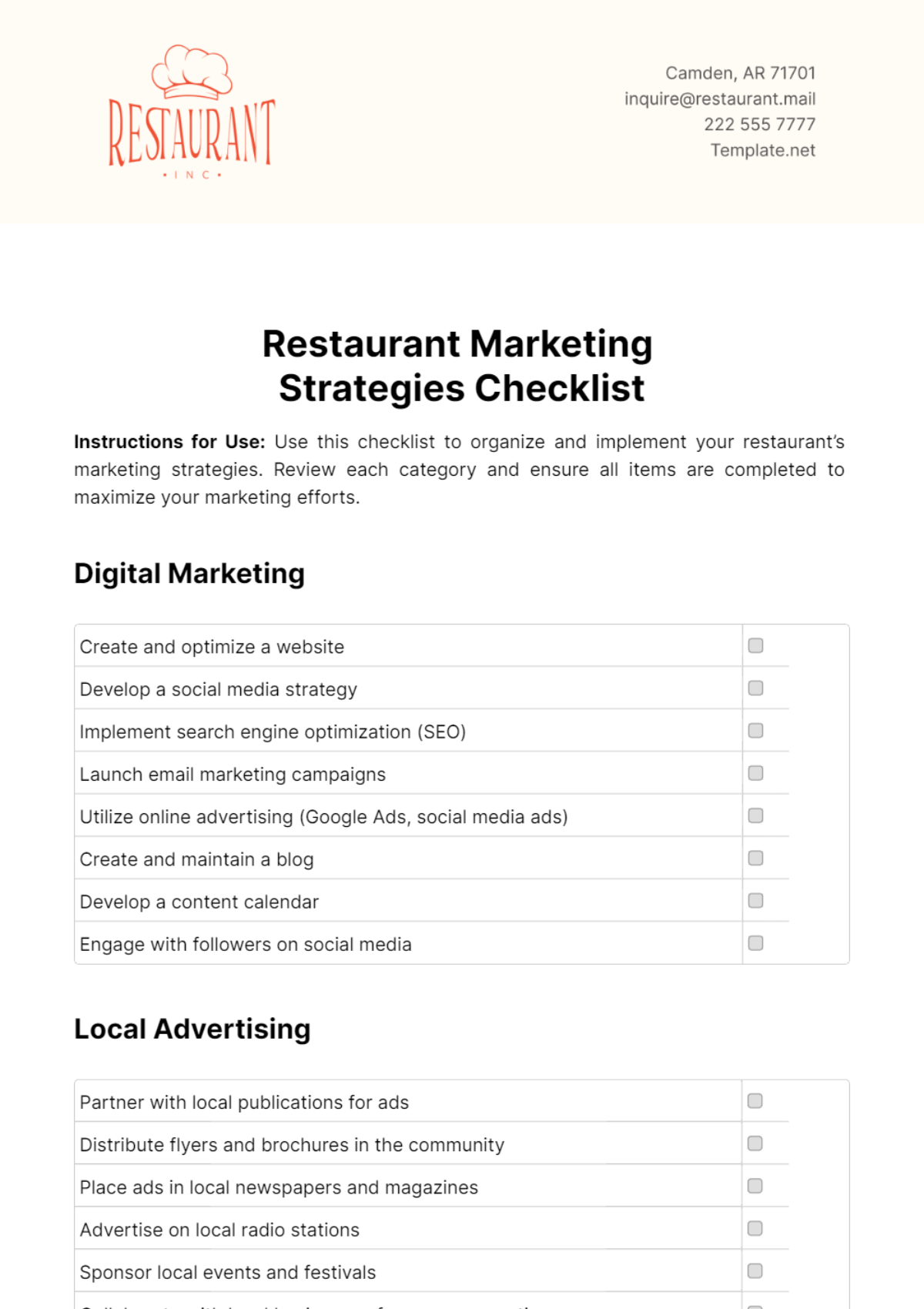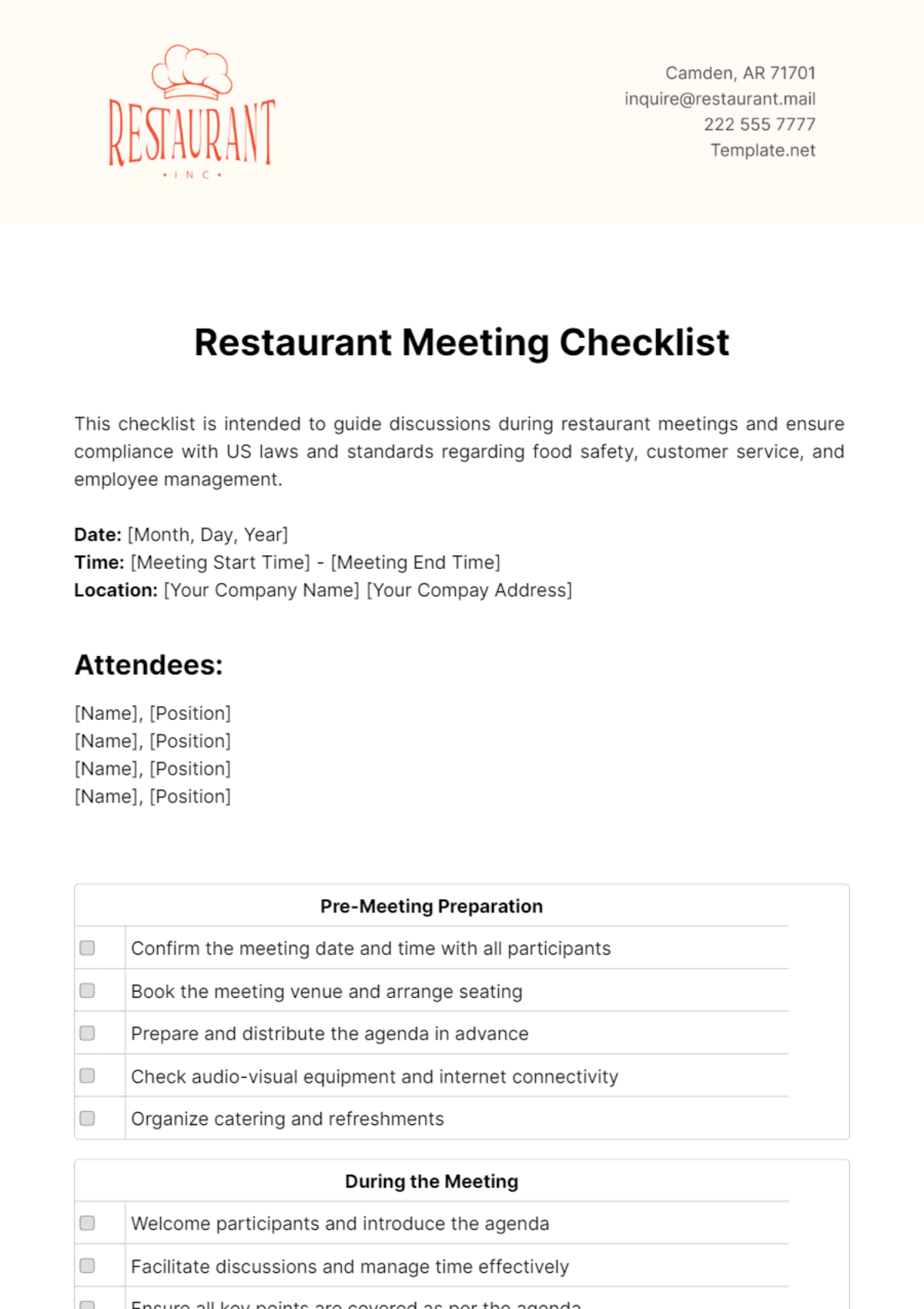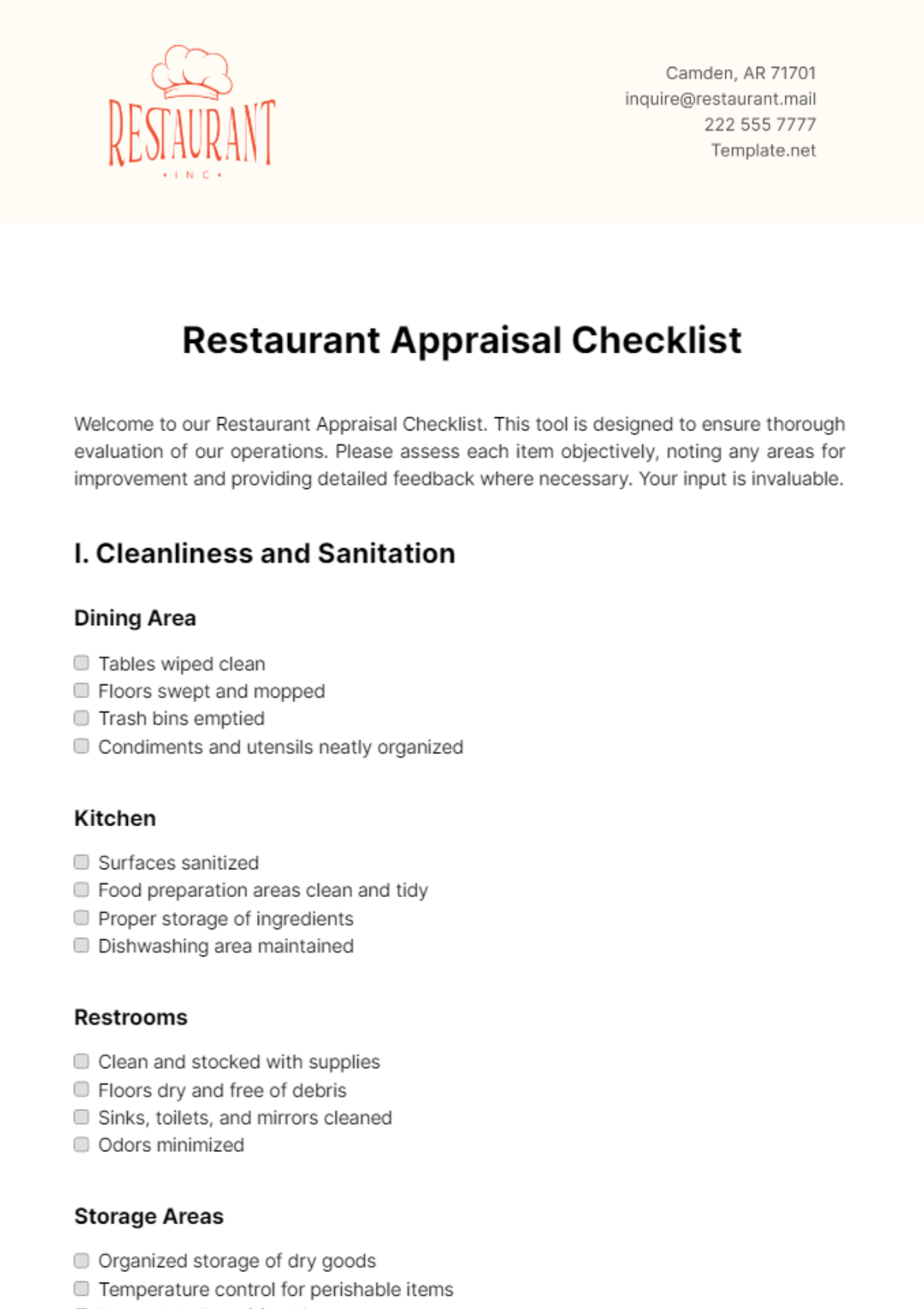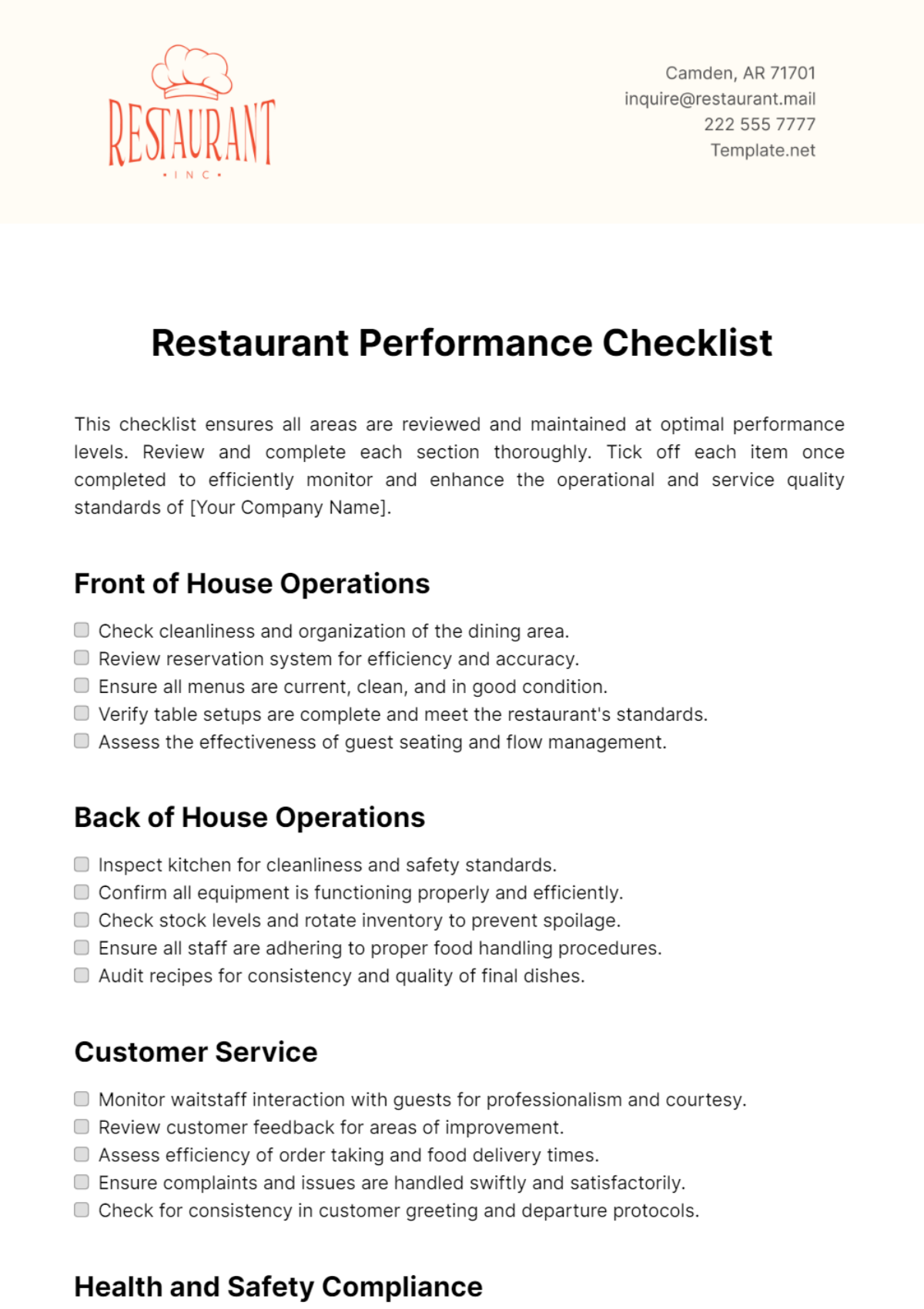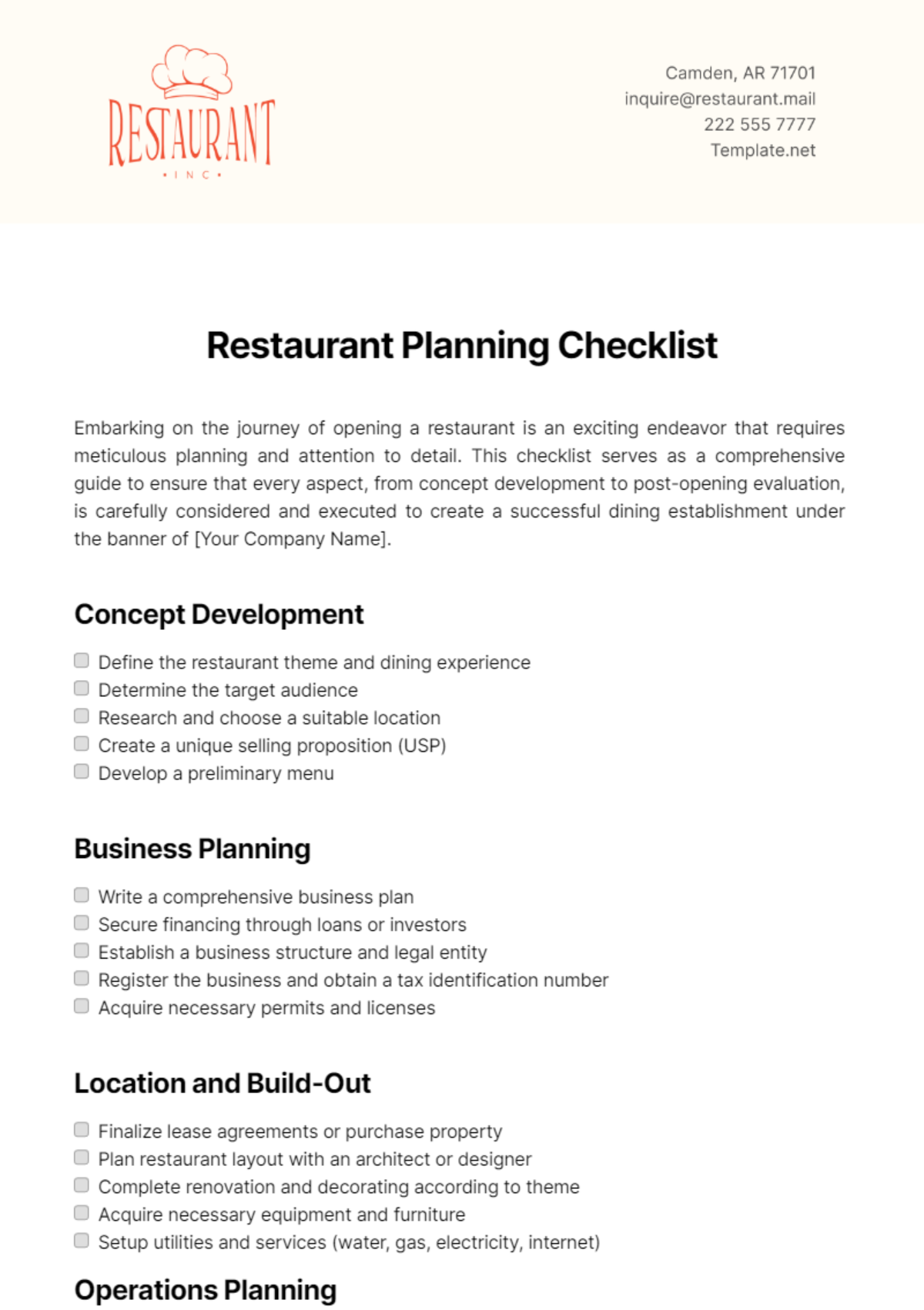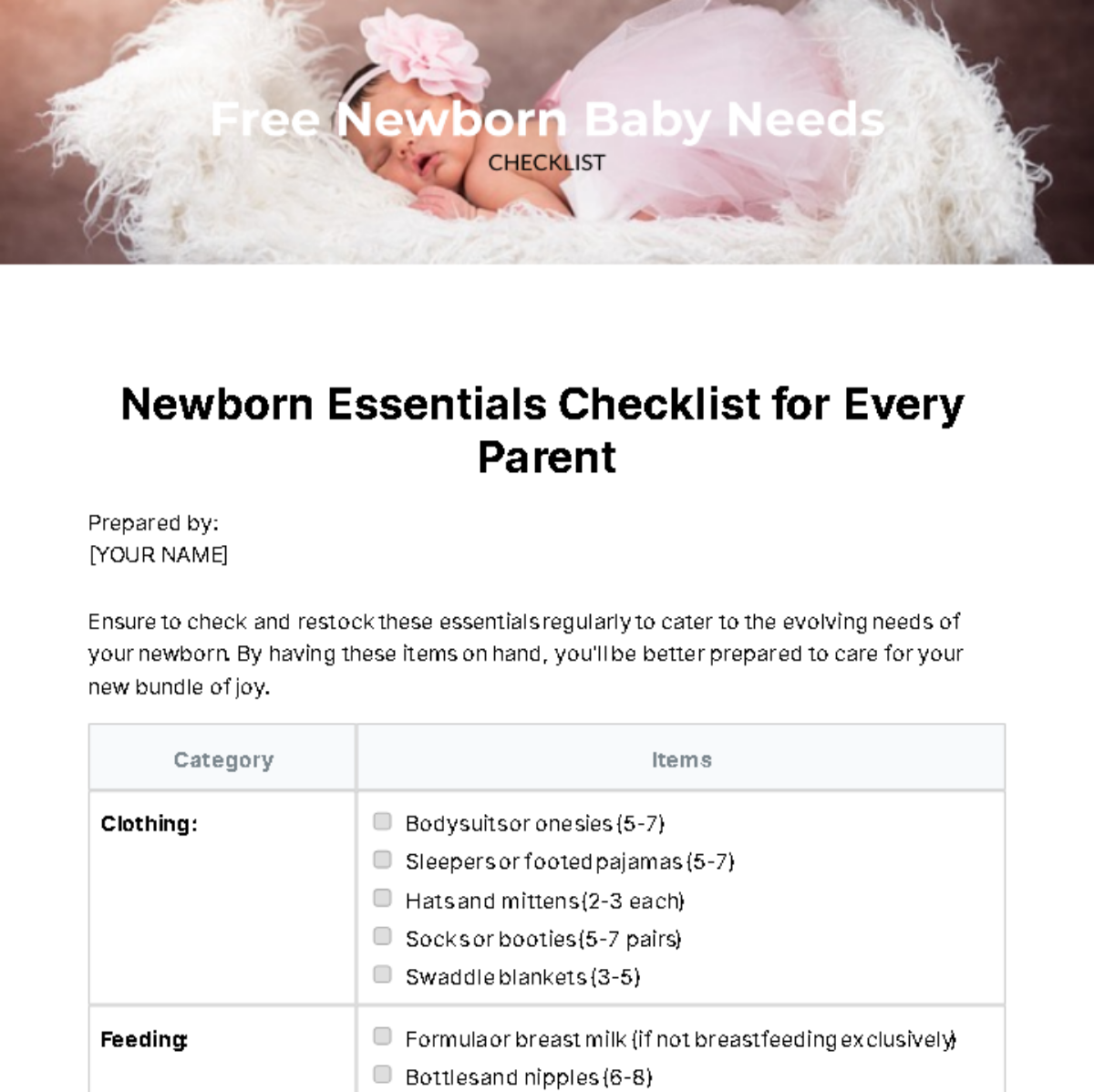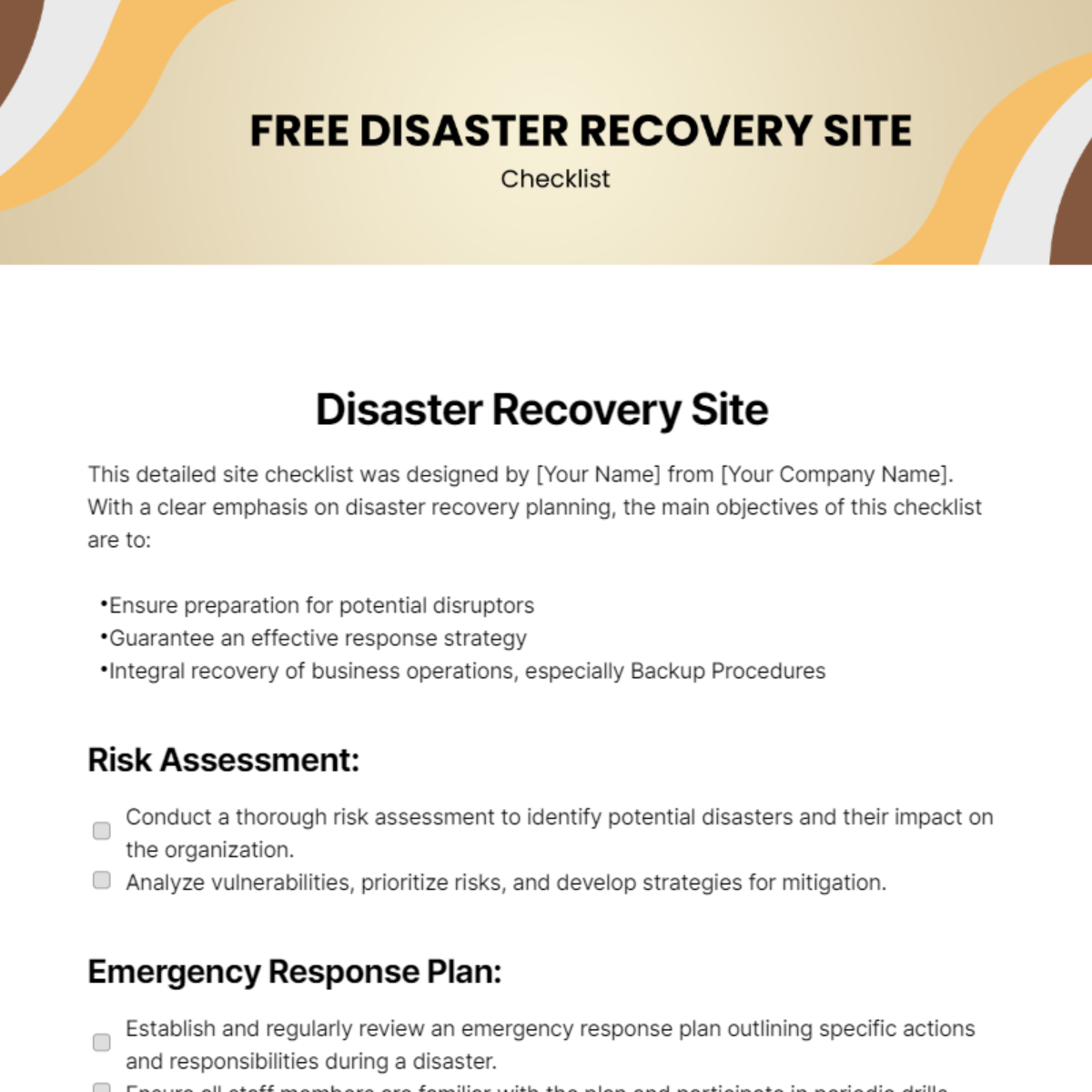Restaurant Checklist
Name | Company | Address |
[Your Name] | [Your Company Name] | [Your Company Address] |
A Restaurant Acquisition Due Diligence Checklist is a comprehensive document used by potential buyers, investors, or acquiring companies to assess the viability and risks associated with acquiring a restaurant business. It serves as a systematic guide to evaluate various aspects of the restaurant's operations, financial performance, legal compliance, and market position.
Financial records and performance
Review income statements, balance sheets, and cash flow statements for the past several years to assess financial stability and profitability.
Analyze revenue streams, cost structures, and profit margins to identify trends and potential areas for improvement.
Examine accounts receivable, accounts payable, and inventory levels to evaluate liquidity and working capital management.
Operational Considerations:
Assess the restaurant's location, size, layout, and capacity to determine its suitability and potential for growth.
Evaluate the quality of food, menu offerings, pricing strategy, and customer satisfaction levels through reviews, ratings, and customer feedback.
Review operational processes, staffing levels, and employee turnover rates to assess efficiency and organizational effectiveness.
Legal and regulatory compliance:
Verify that the restaurant holds all necessary licenses, permits, and certifications required for operation, including health permits, liquor licenses, and business licenses.
Identify any outstanding legal issues, litigation, or regulatory violations that may pose risks or liabilities to the business.
Lease Agreements and Property Considerations:
Review lease agreements, property ownership documents, and lease terms to understand rental obligations, lease renewals, and potential liabilities.
Assess the condition of the restaurant premises, equipment, and facilities, including any required repairs, maintenance, or renovations.
Market Analysis and Competitive Landscape:
Conduct a market analysis to evaluate local demographics, consumer preferences, and competitive dynamics in the restaurant industry.
Identify competitors, market trends, and potential growth opportunities for the restaurant within its target market.
Supplier Relationships and Inventory Management:
Assess relationships with suppliers, vendors, and distributors to ensure reliability, quality, and pricing competitiveness of inventory and ingredients.
Evaluate inventory management systems, stock levels, and waste controls to optimize inventory turnover and reduce costs.
Brand Reputation and Marketing Strategies
Evaluate the restaurant's brand reputation, online presence, and marketing strategies through website analysis, social media engagement, and advertising campaigns.
Assess customer loyalty programs, promotional activities, and branding initiatives to determine effectiveness and market positioning.
Employee Relations and Human Resources
Review employee contracts, wages, benefits, and HR policies to assess compliance with labor laws and regulations.
Evaluate employee training programs, performance management systems, and workplace culture to ensure employee satisfaction and retention.
Checklist Templates @ Template.net
